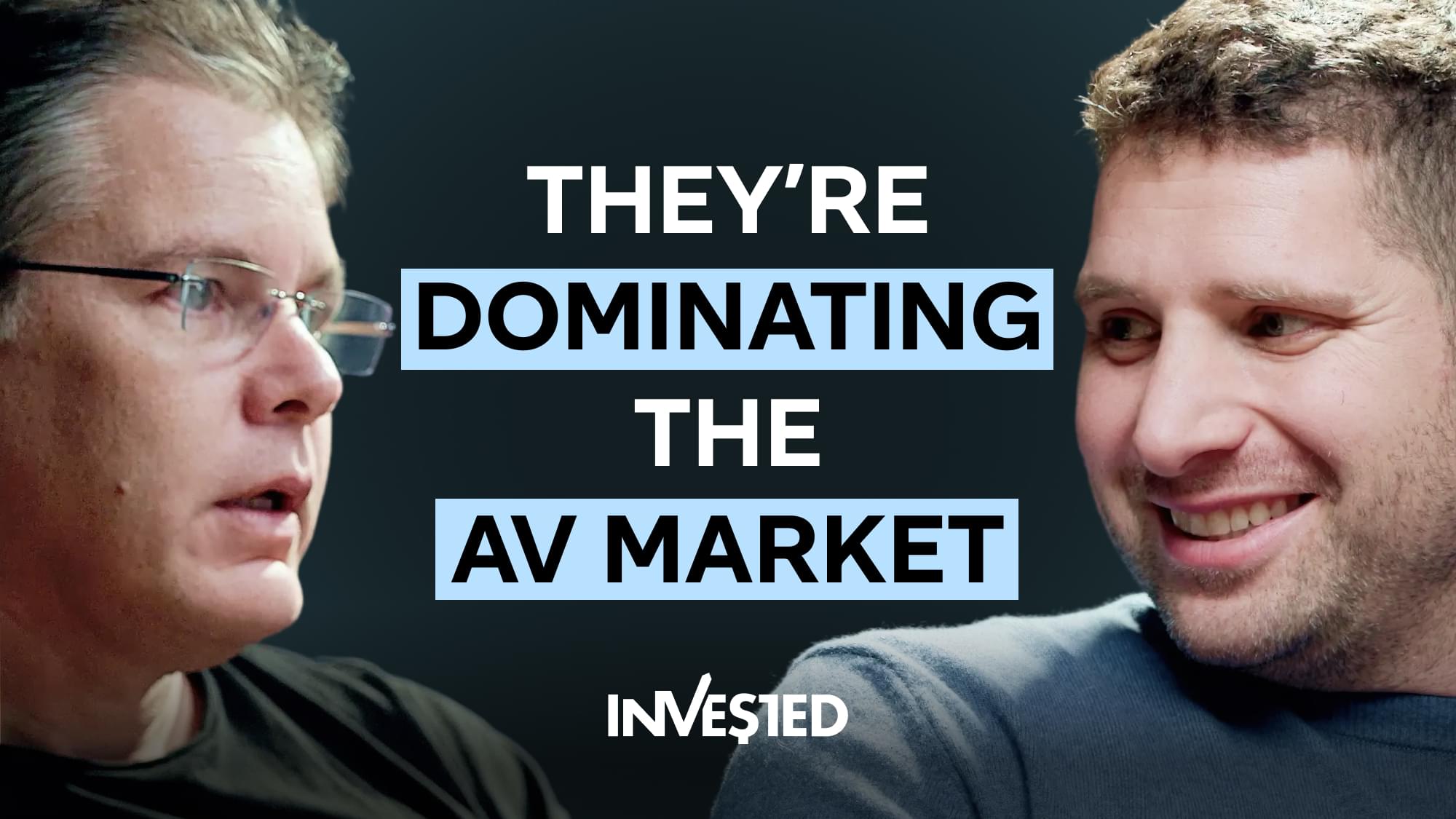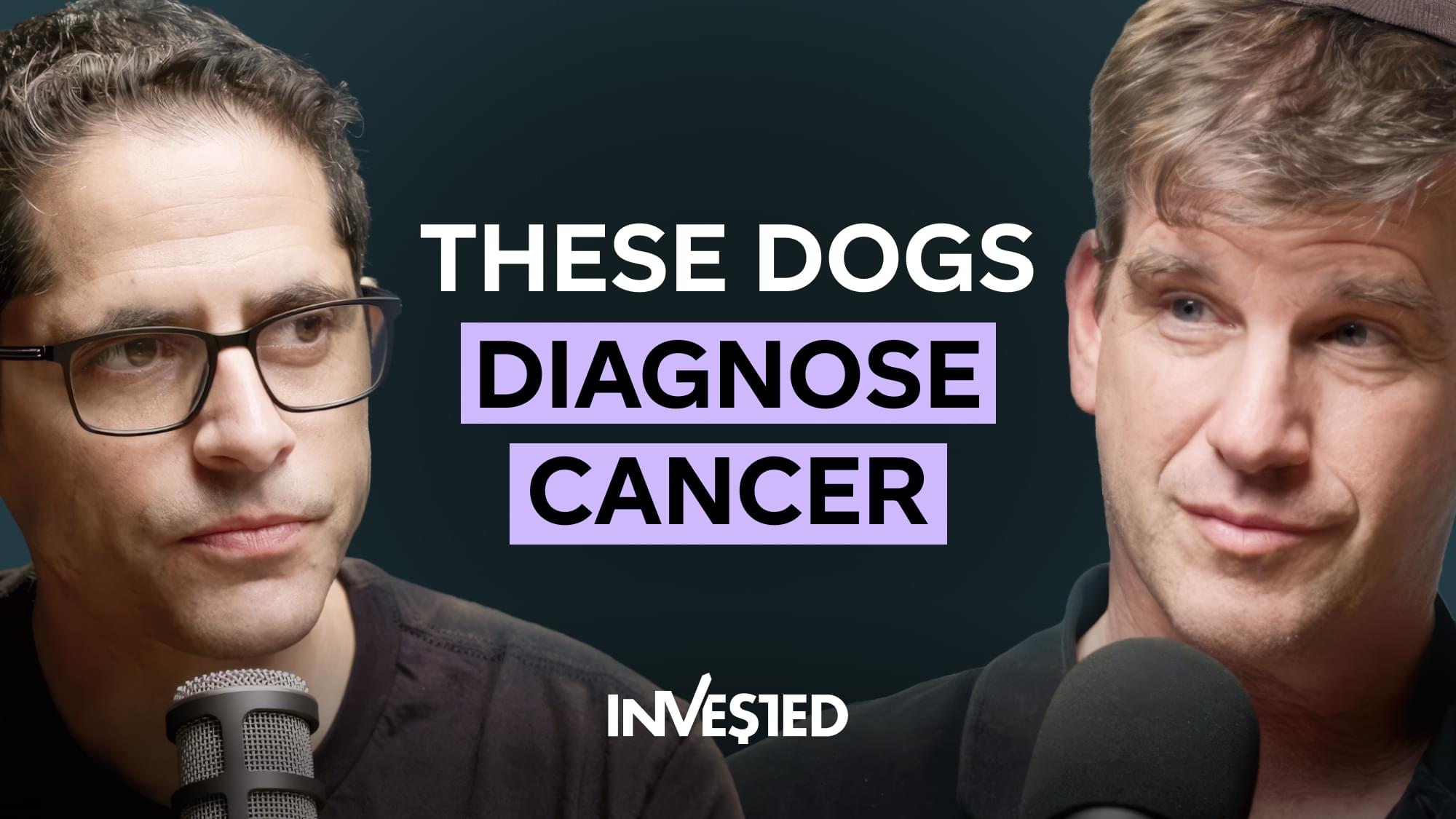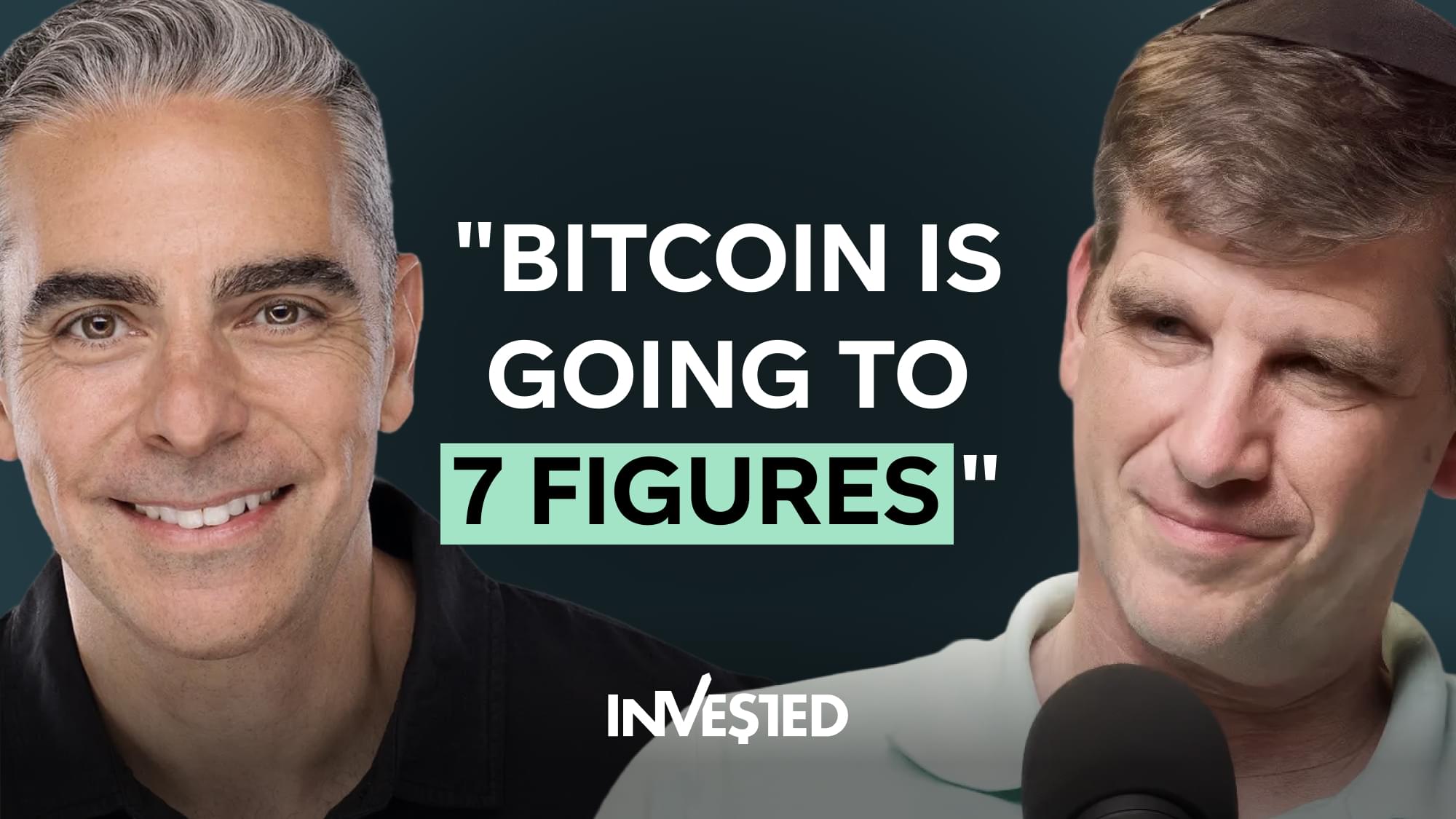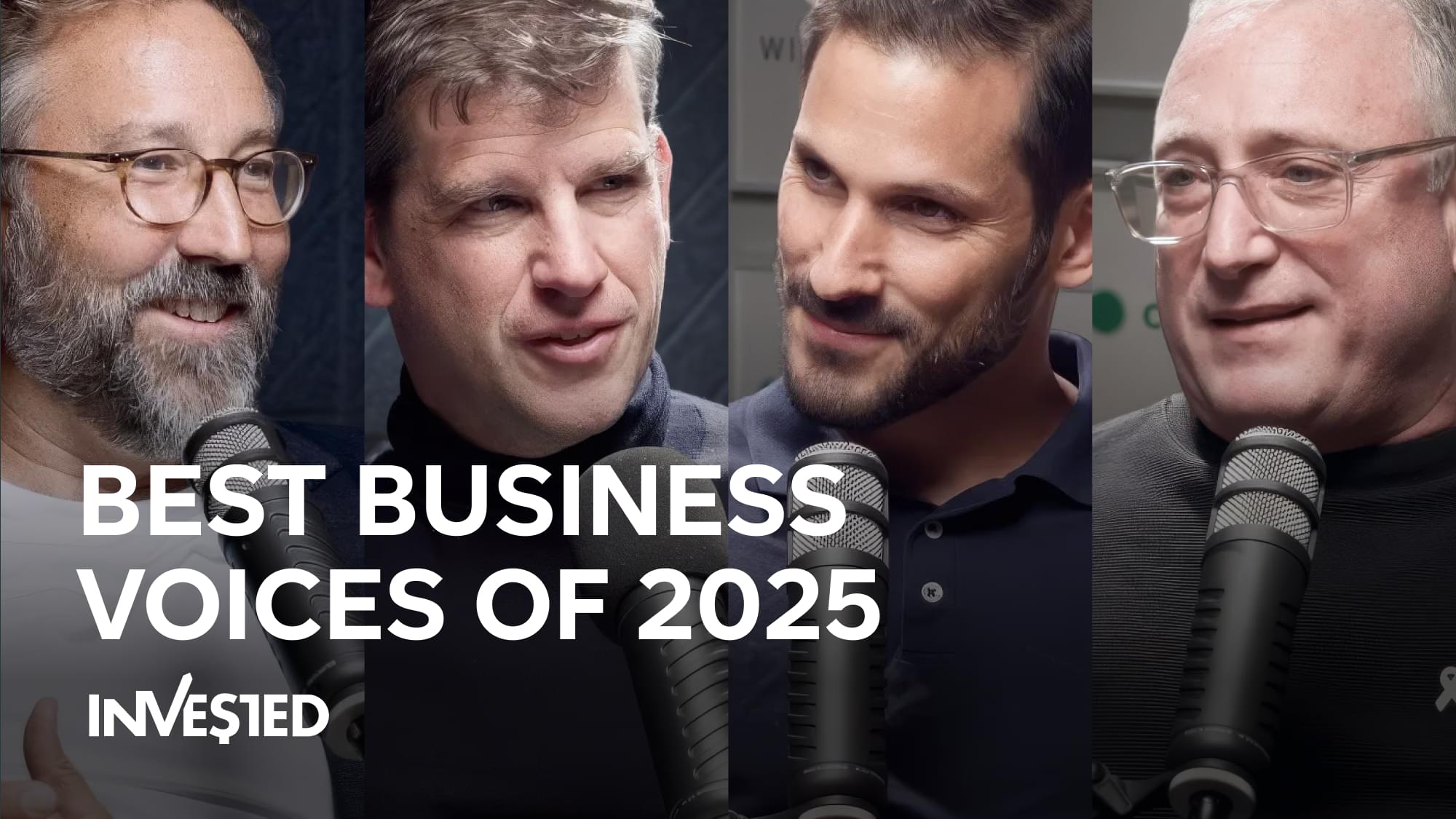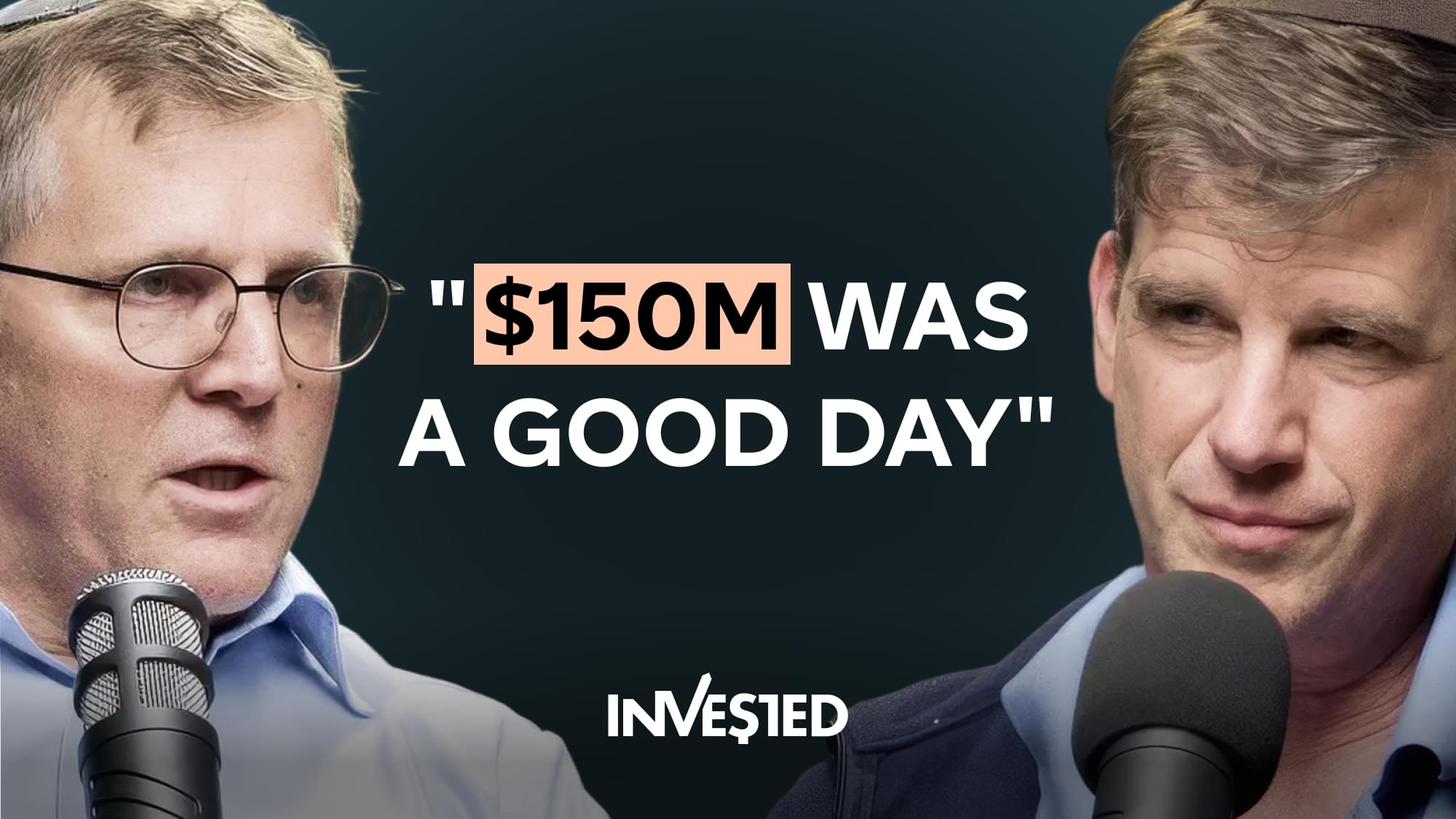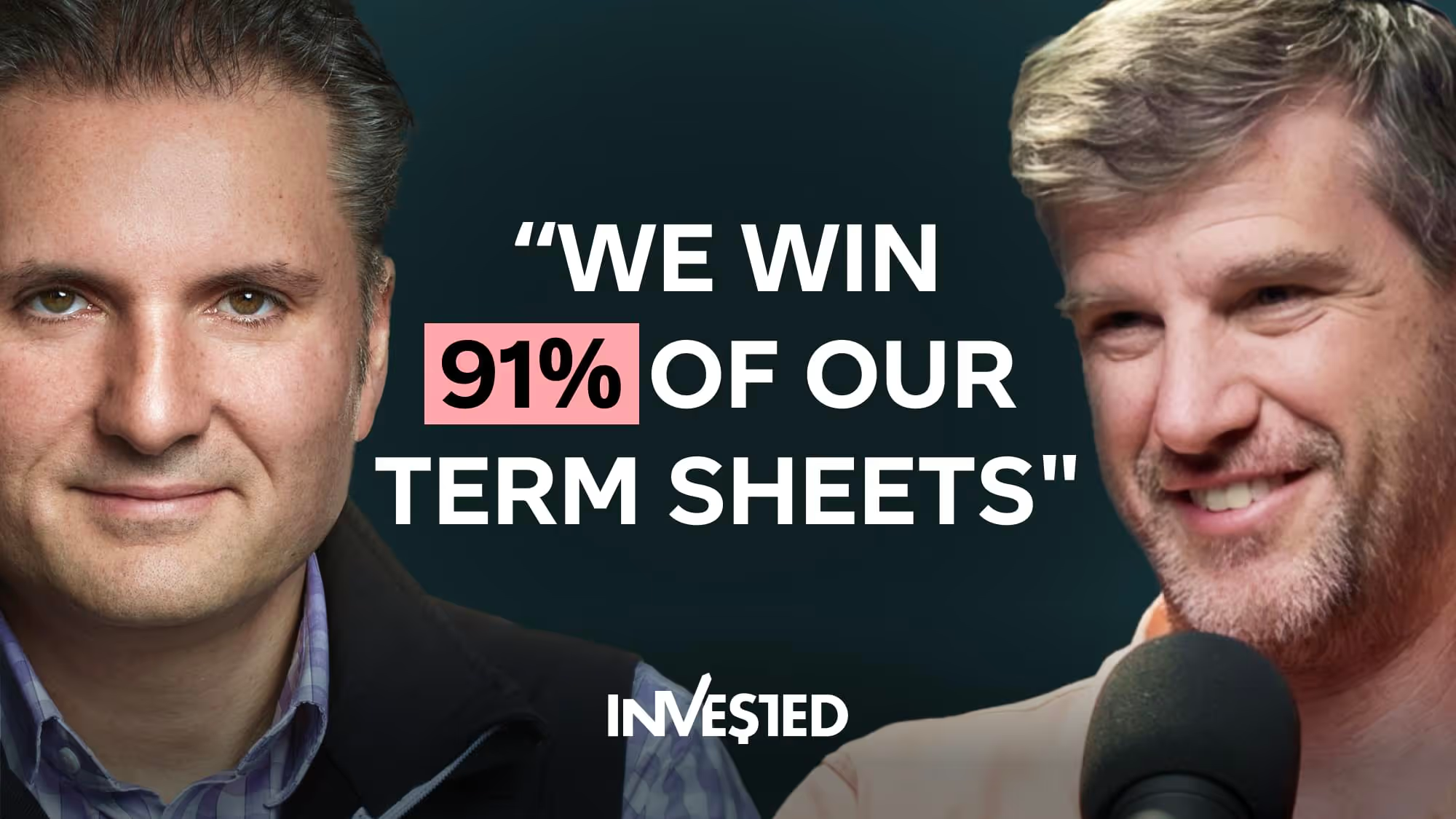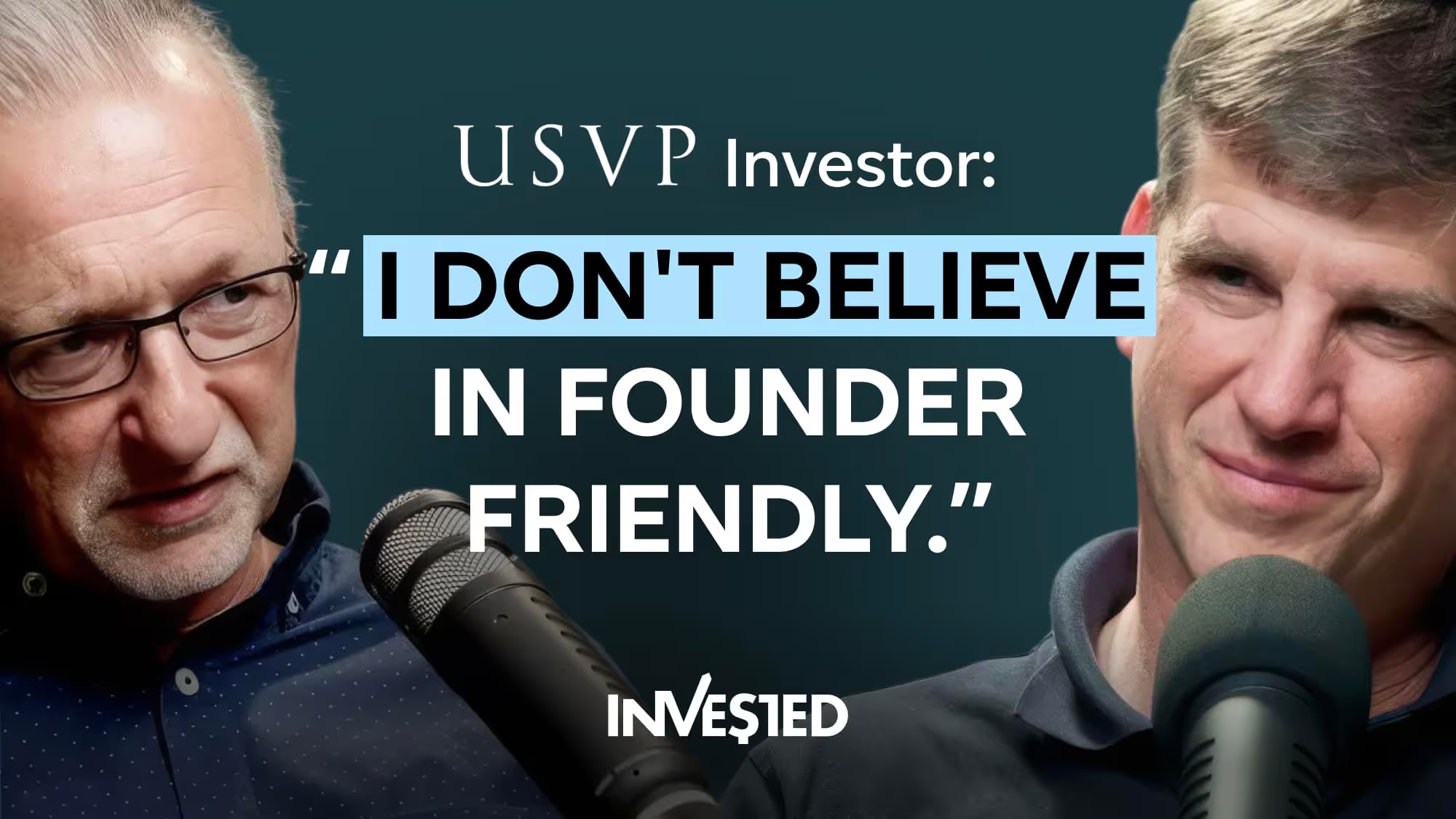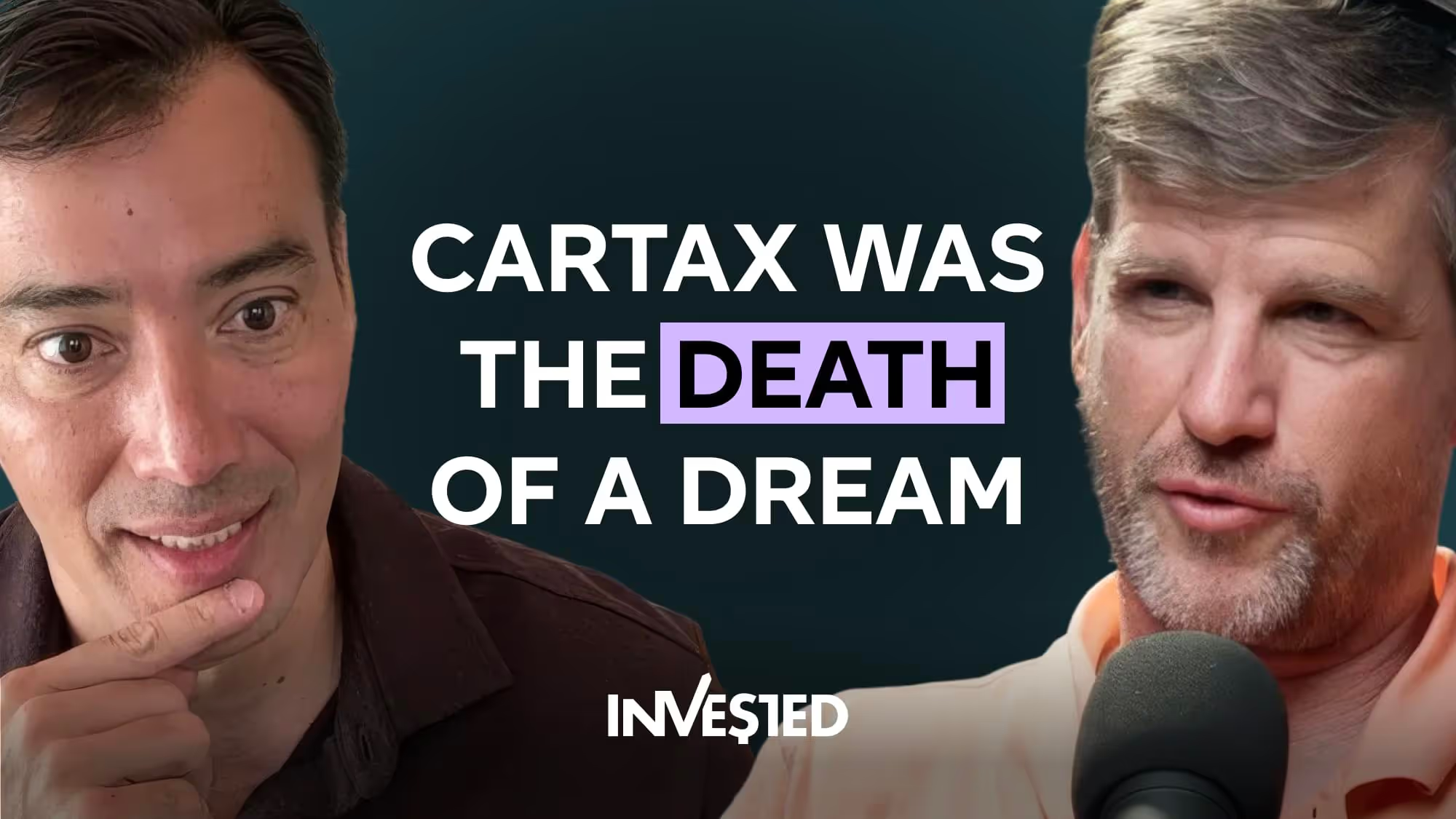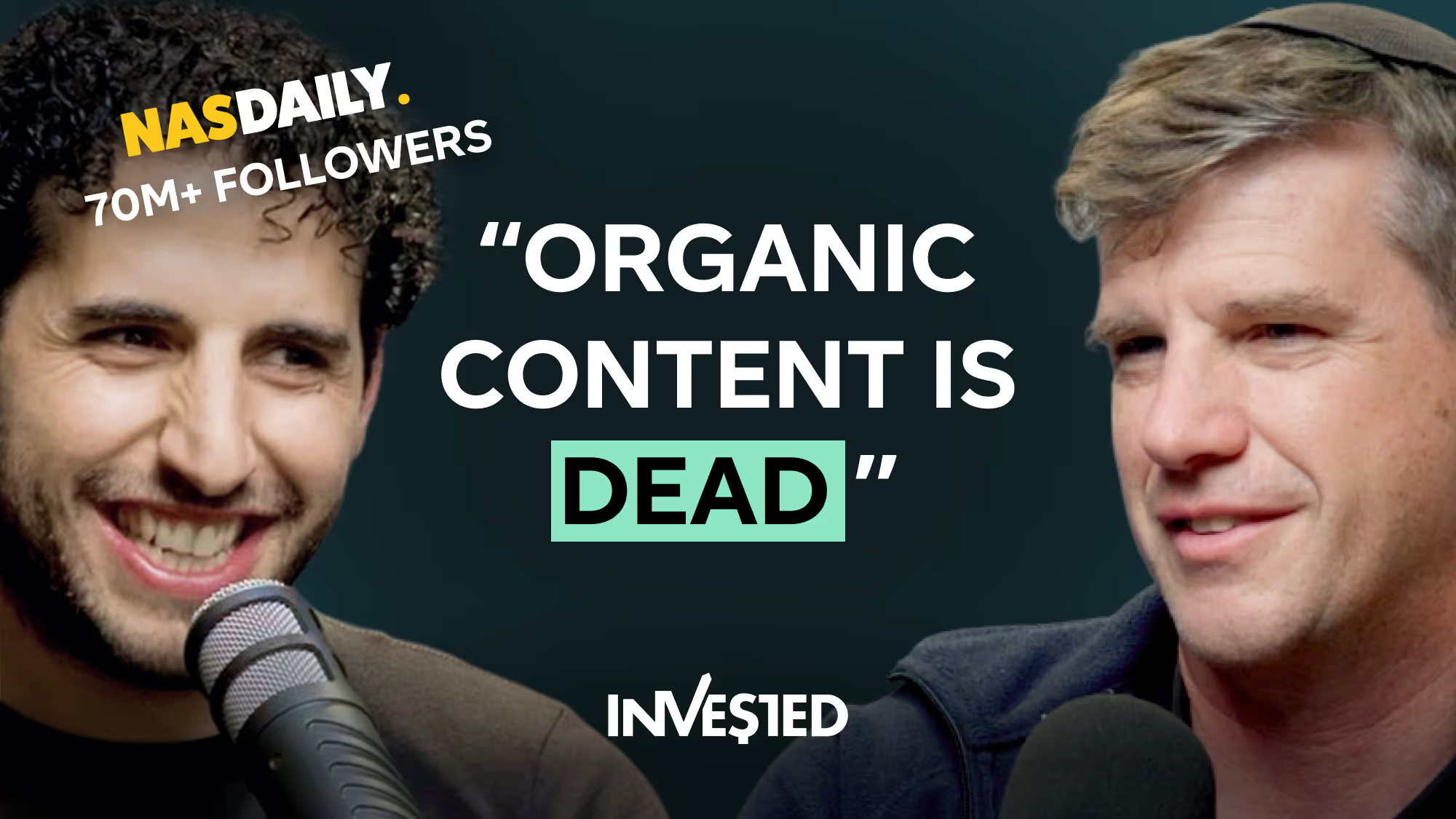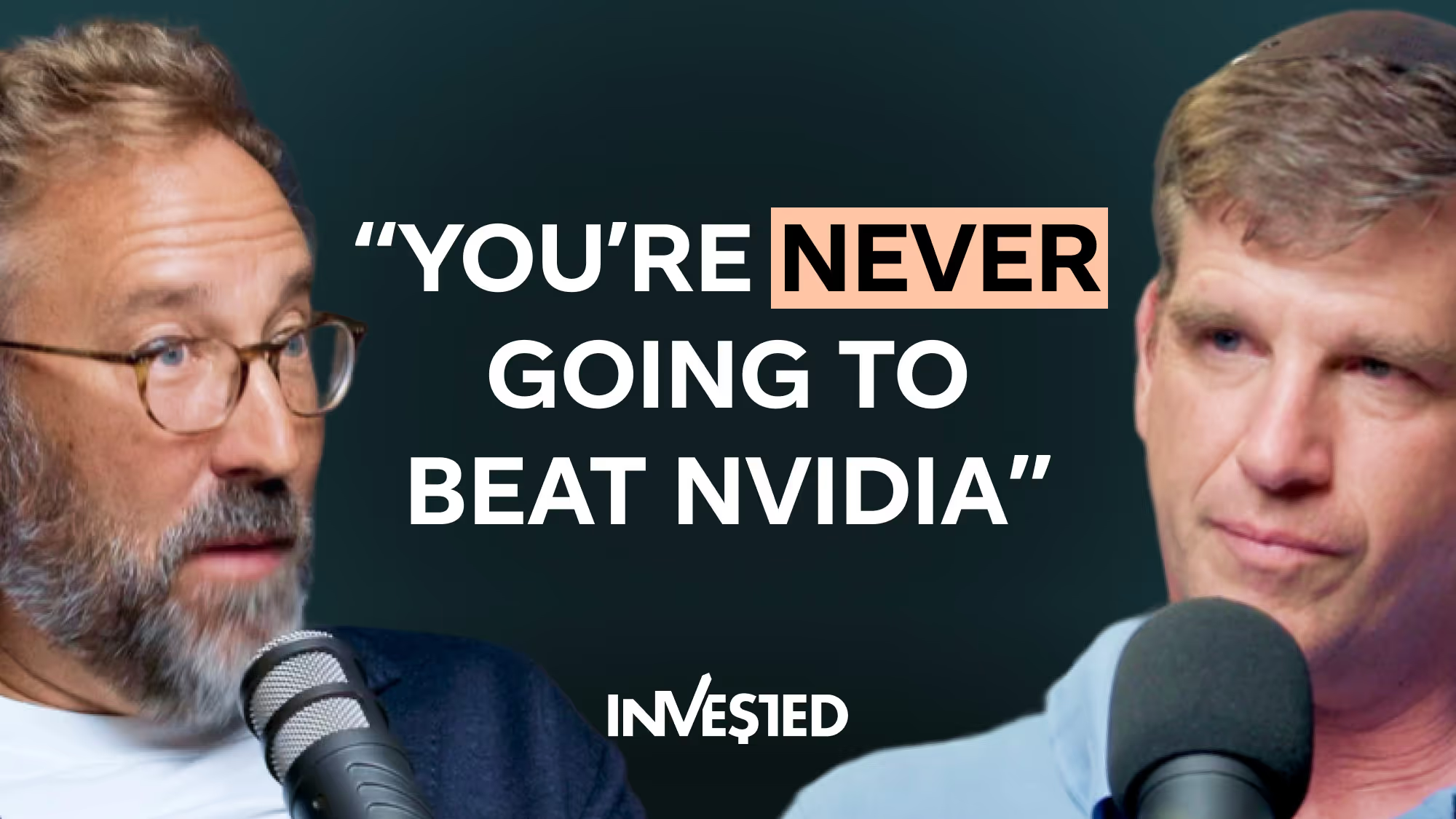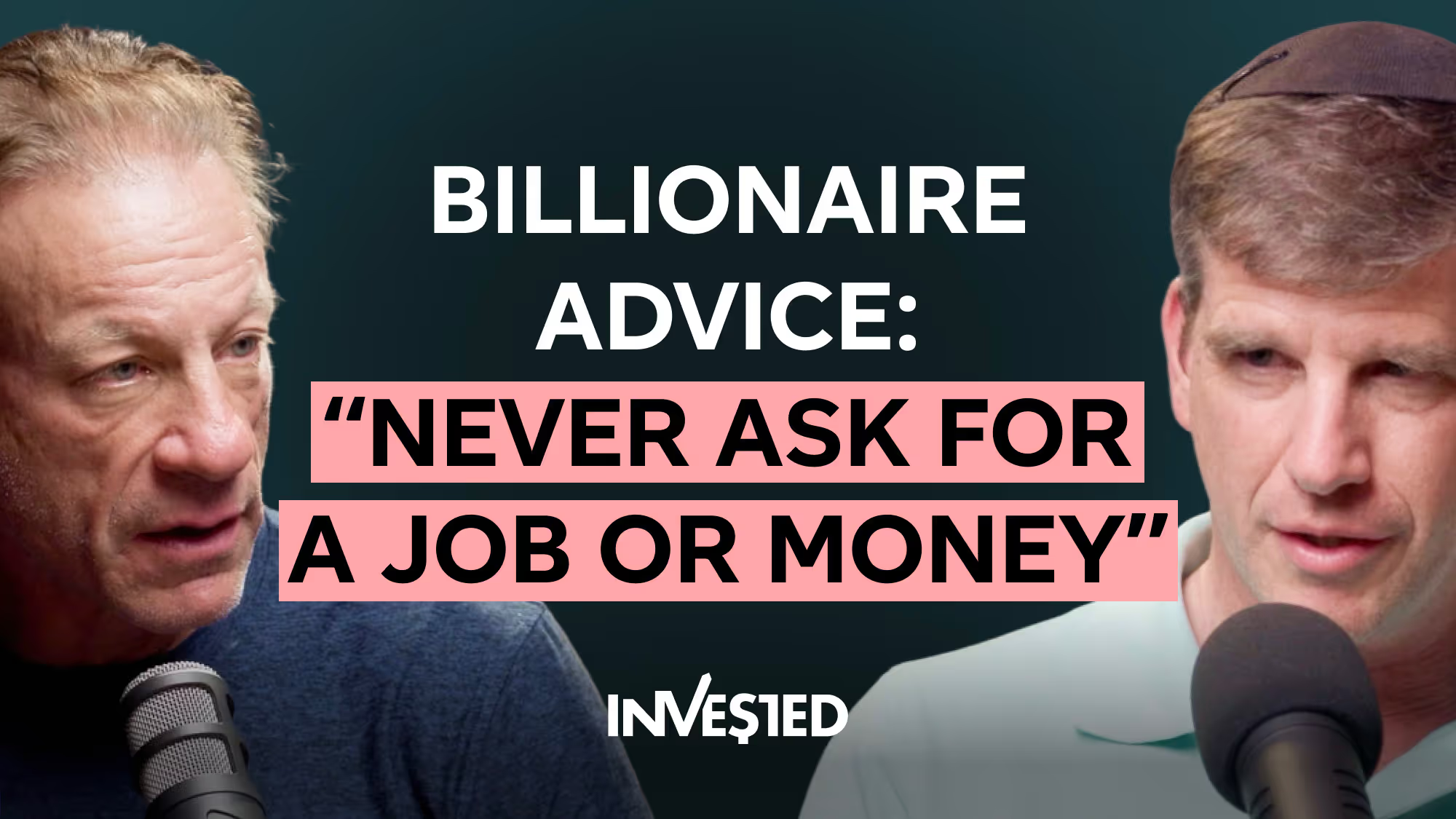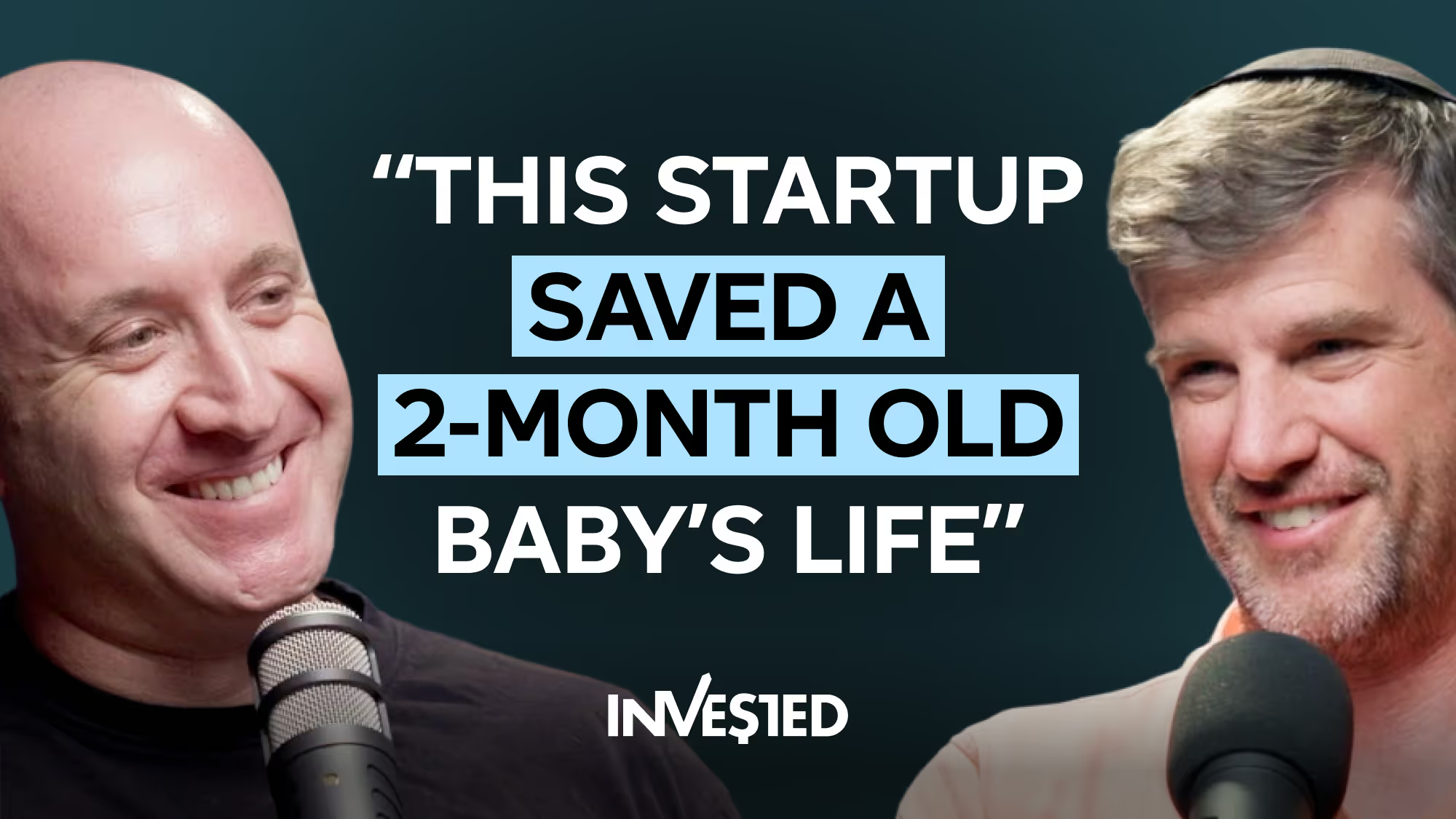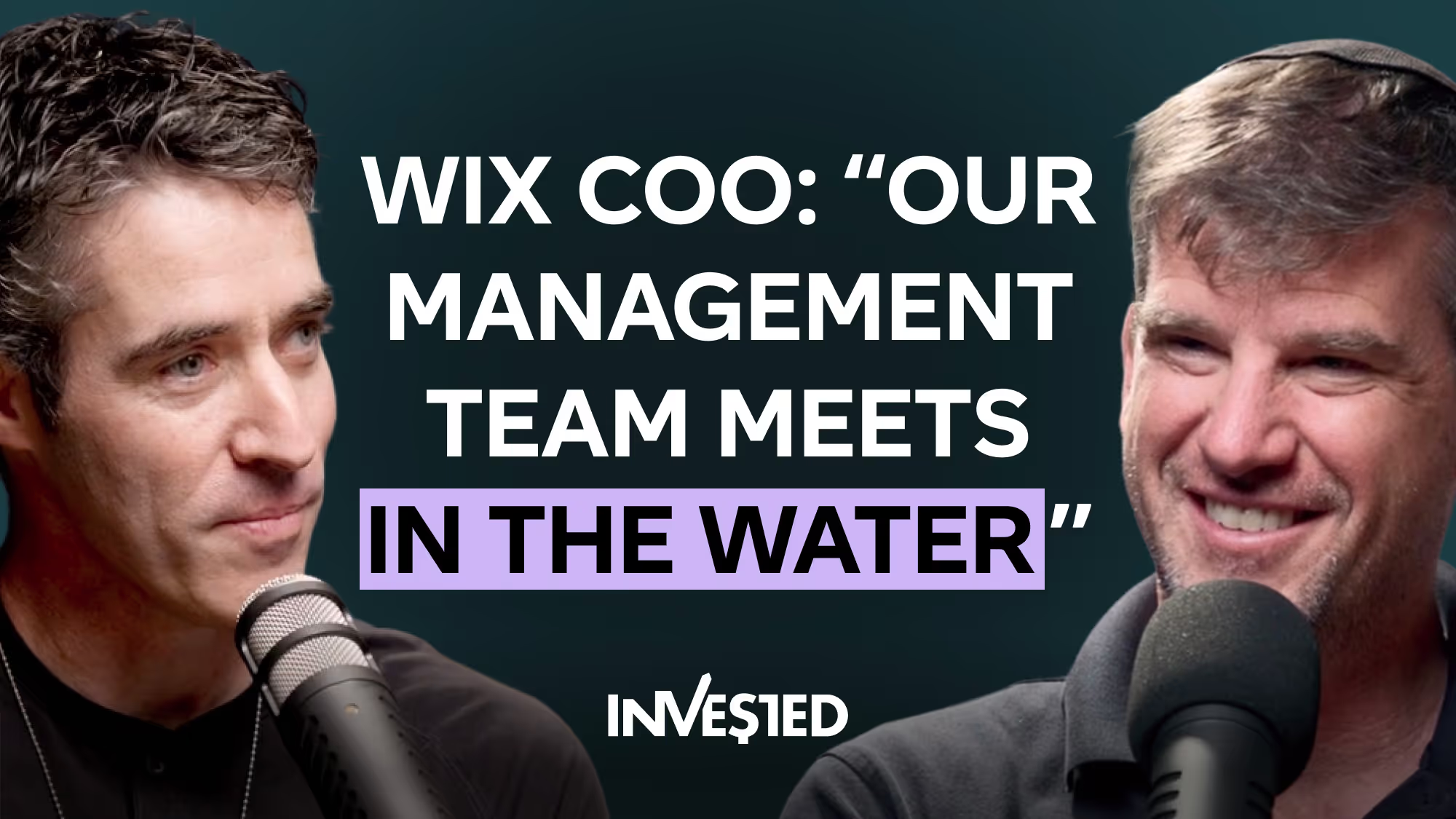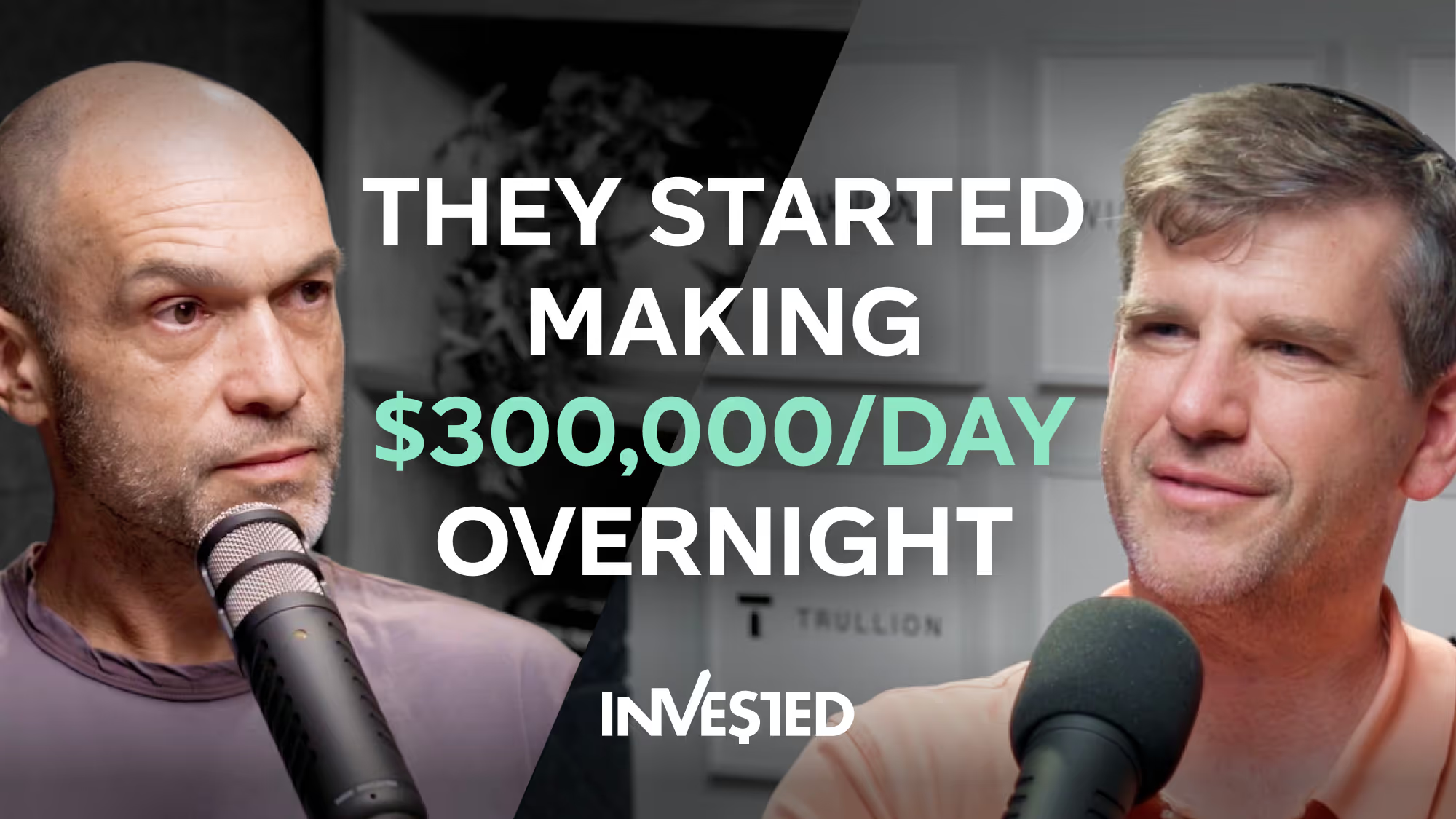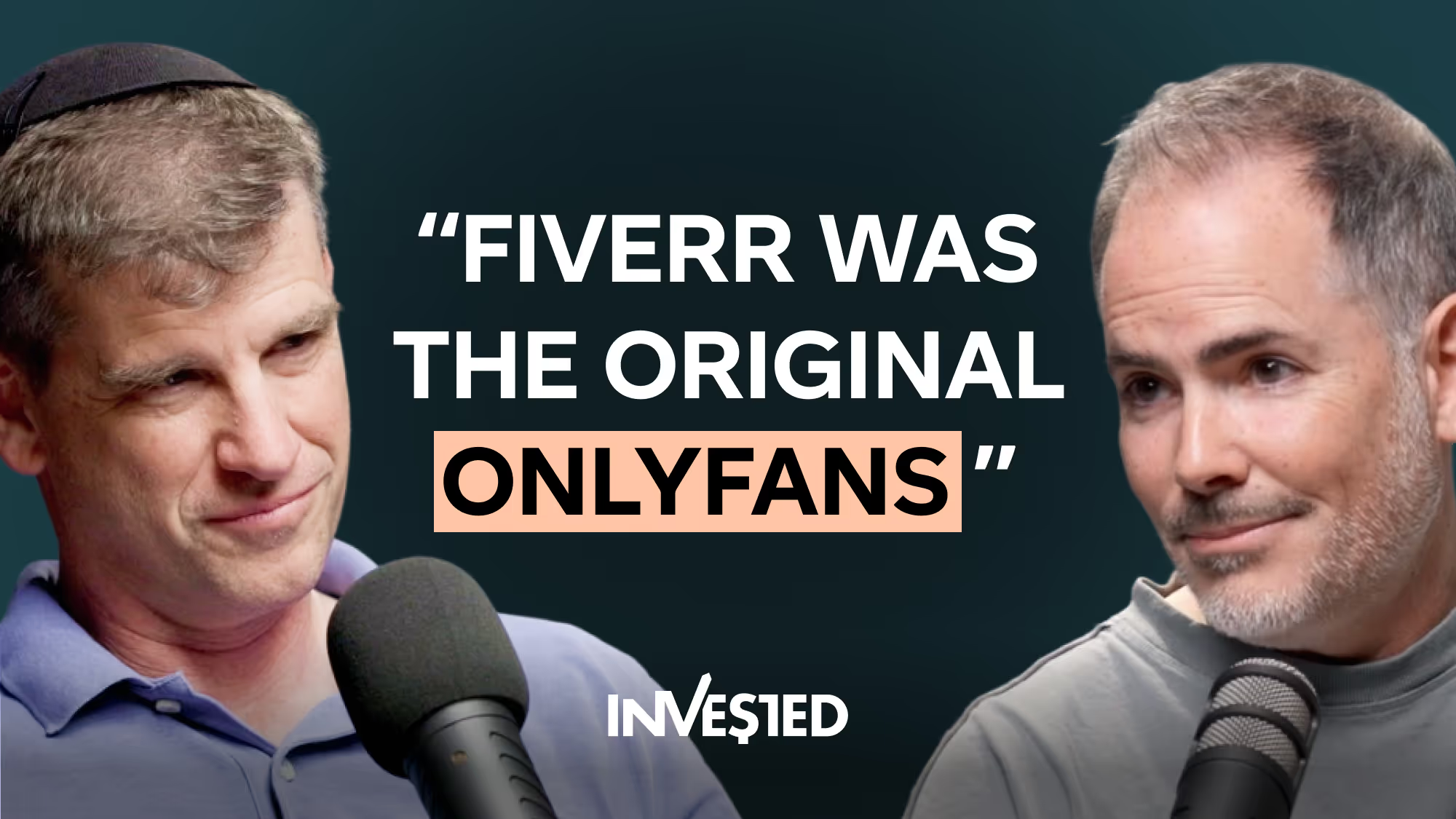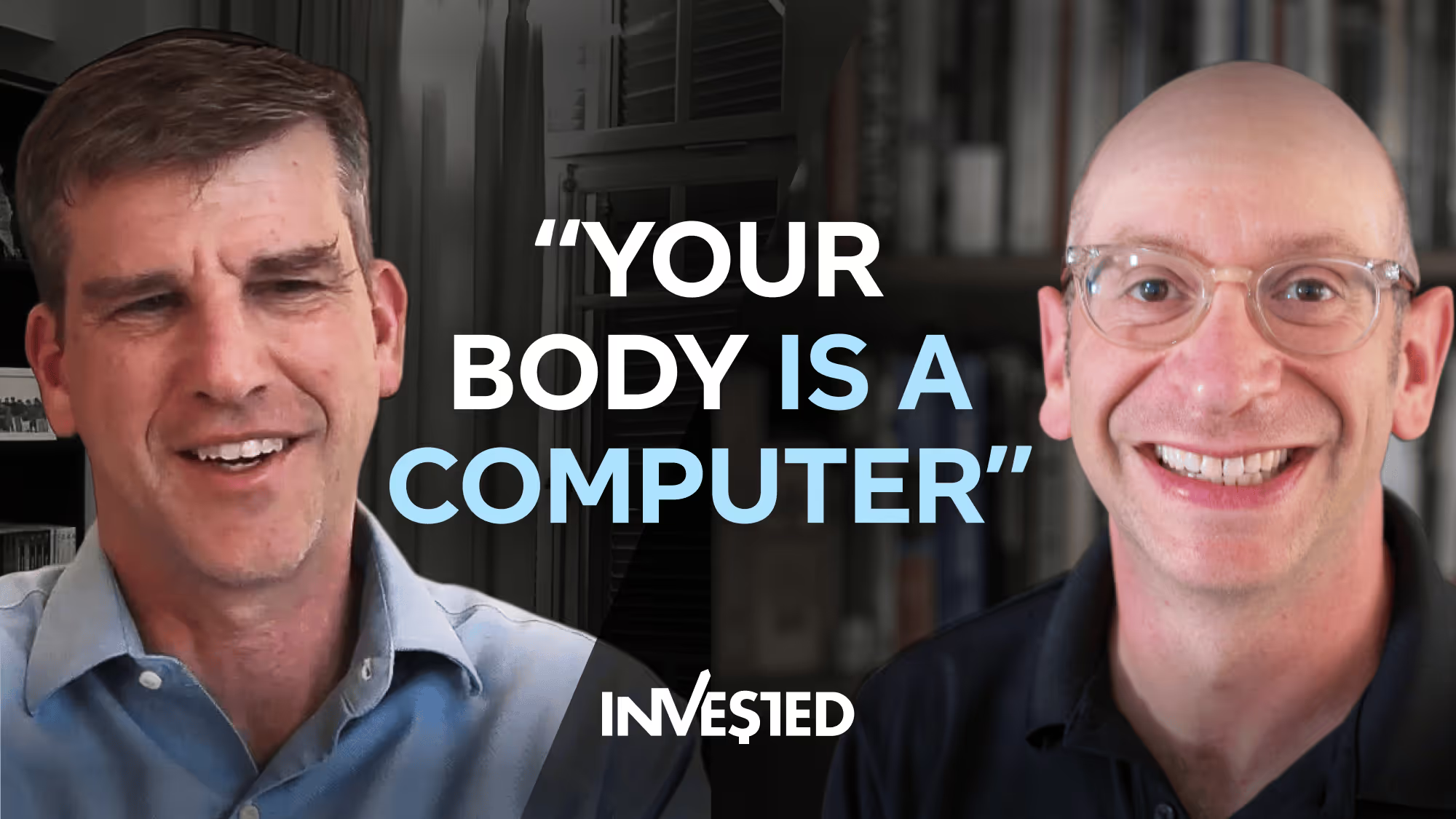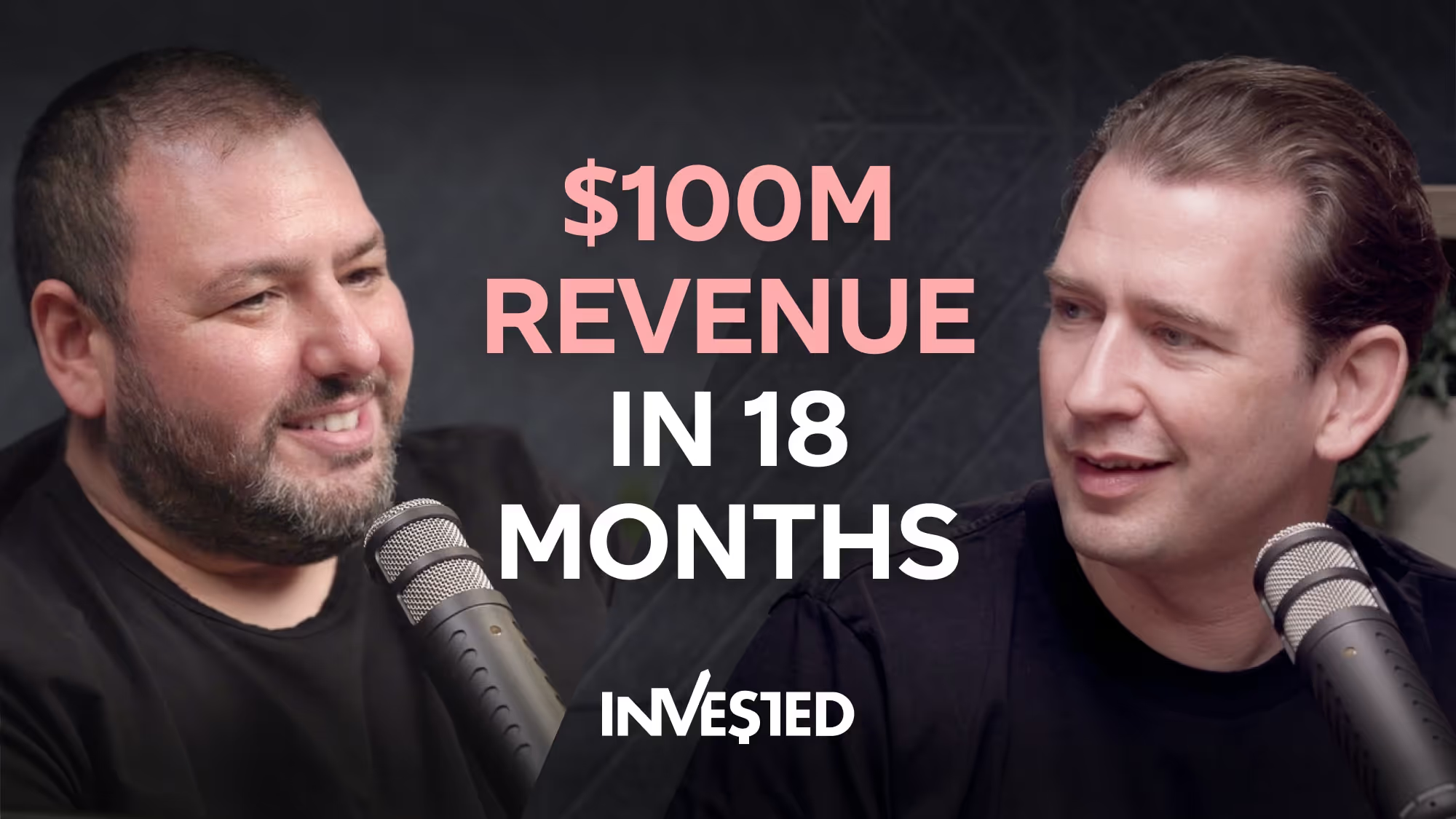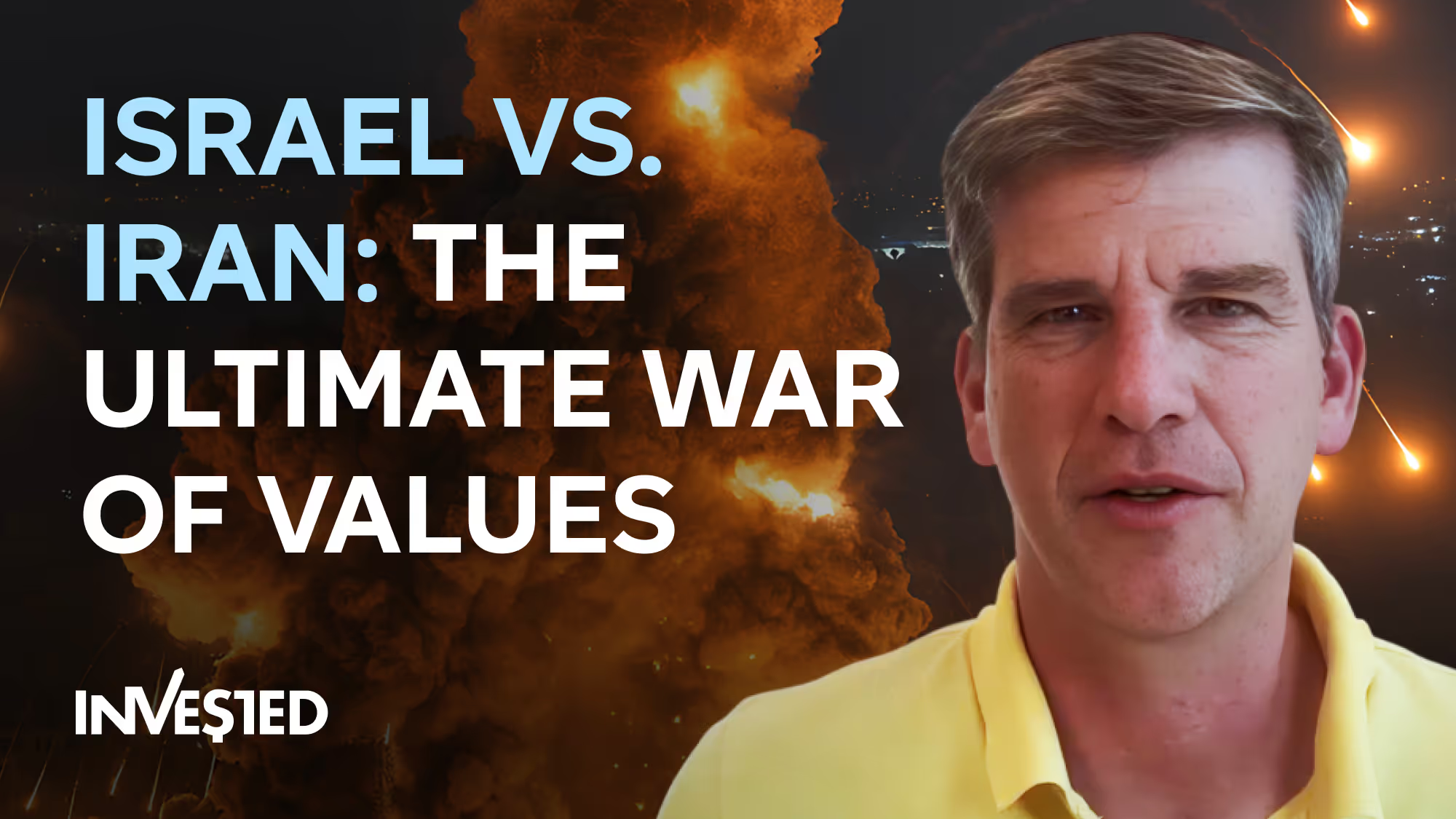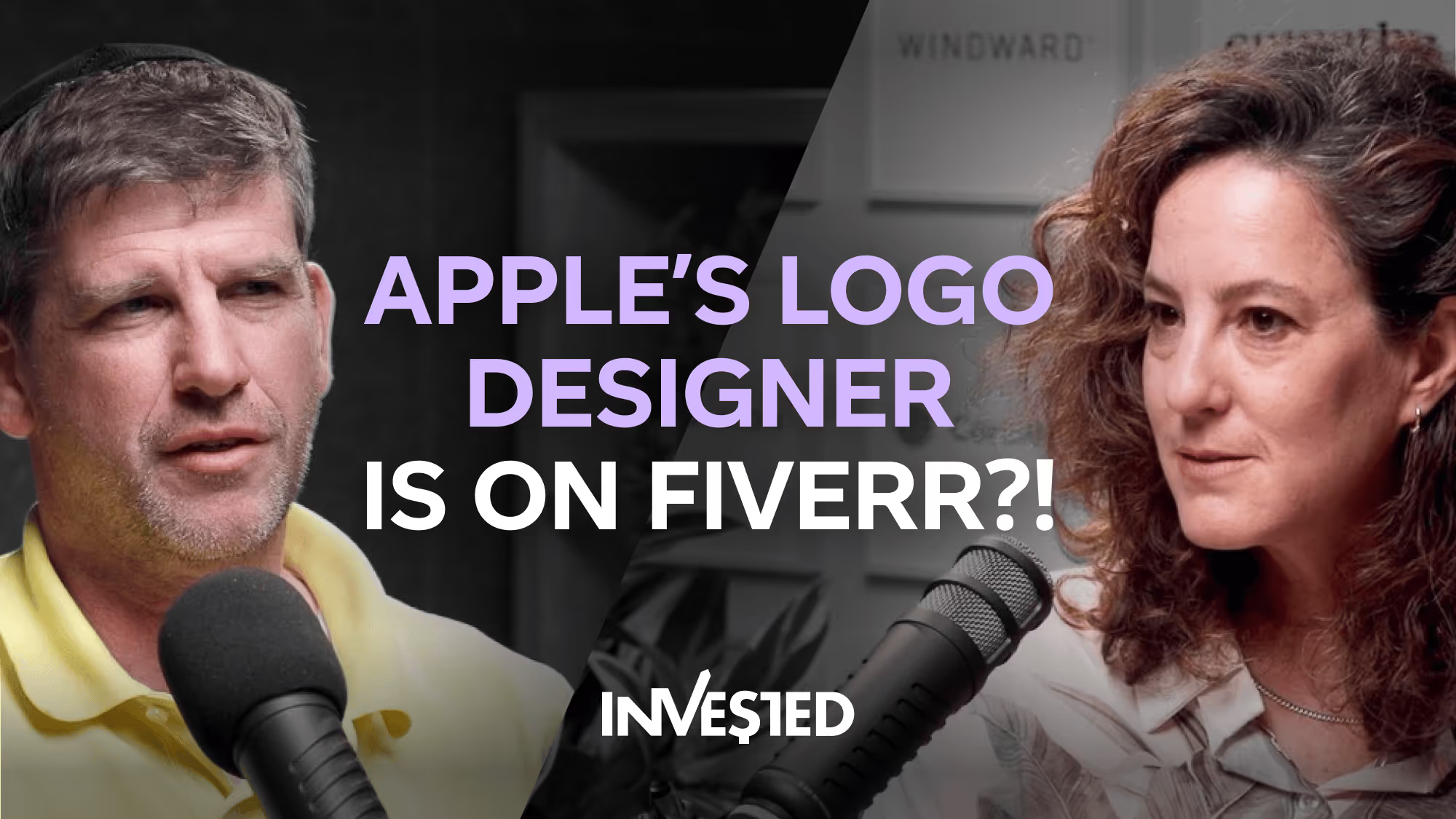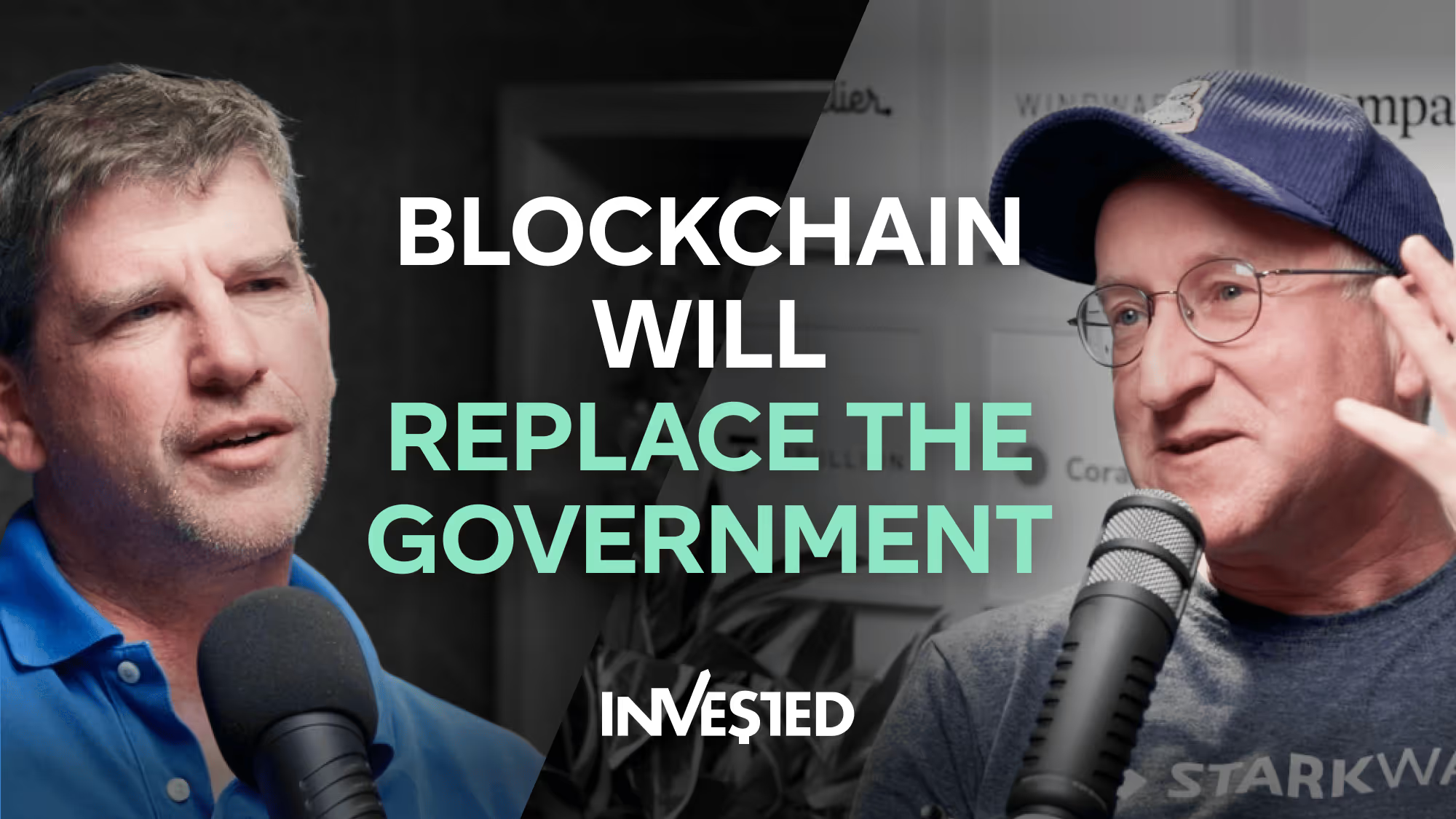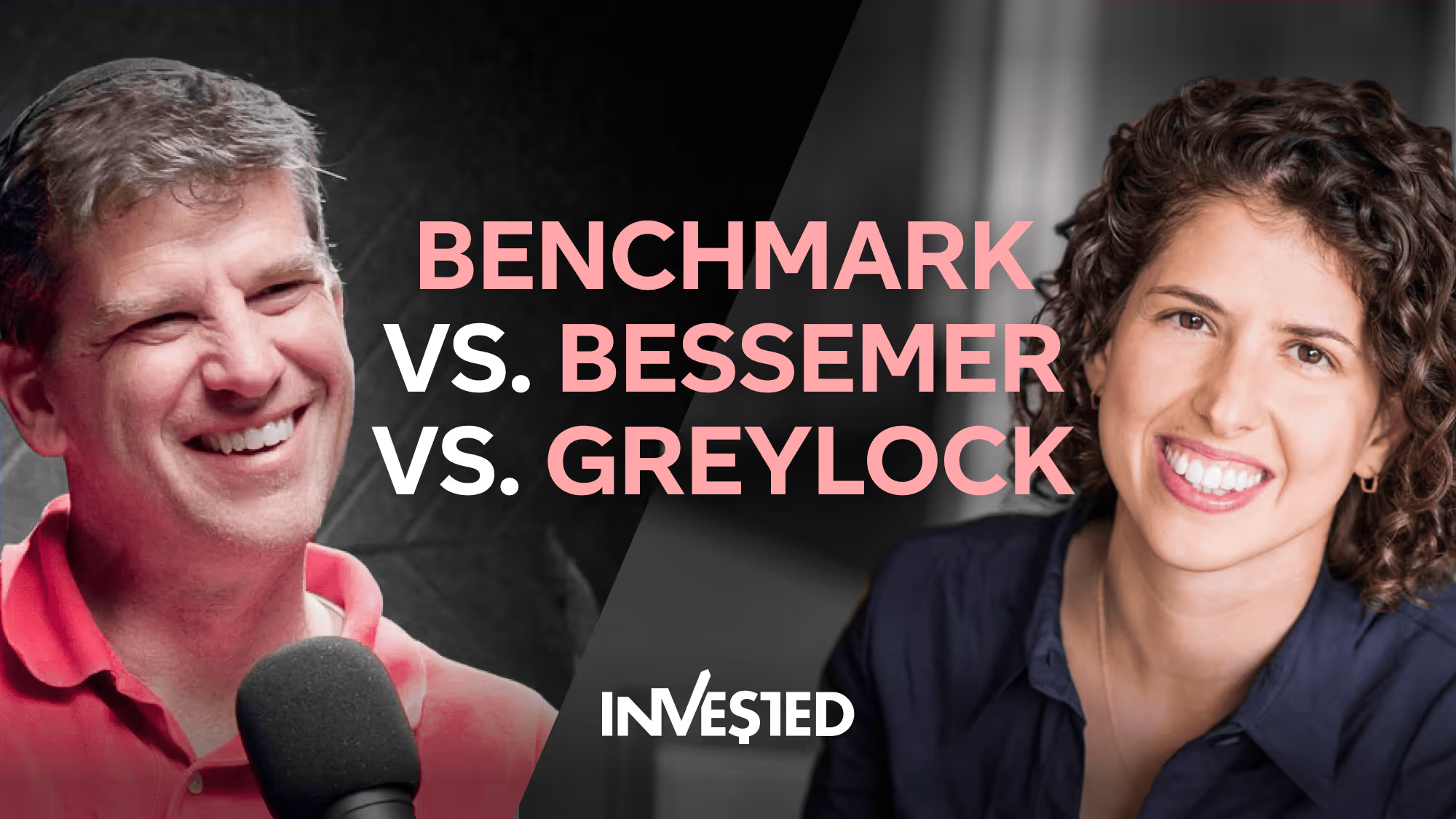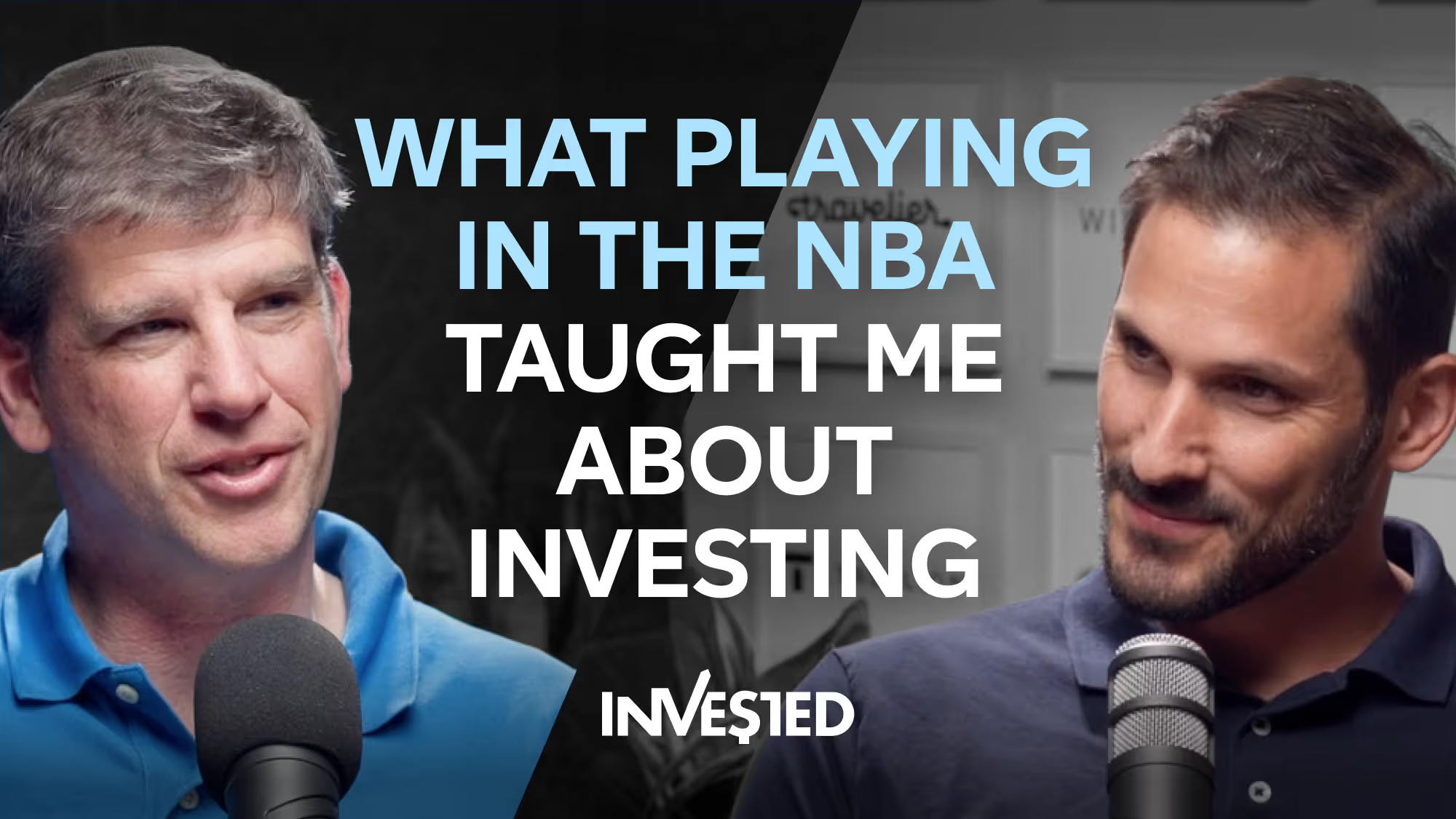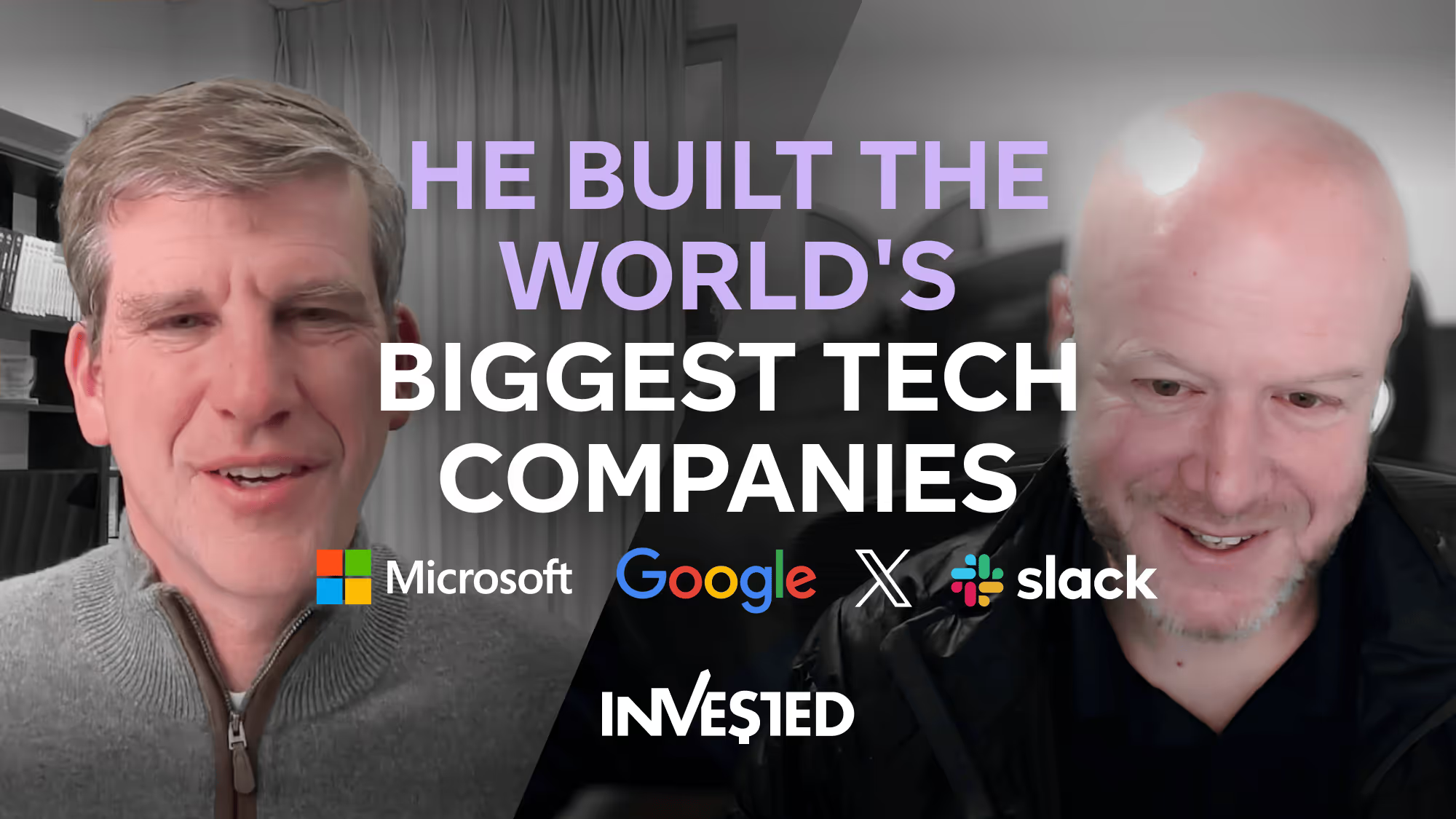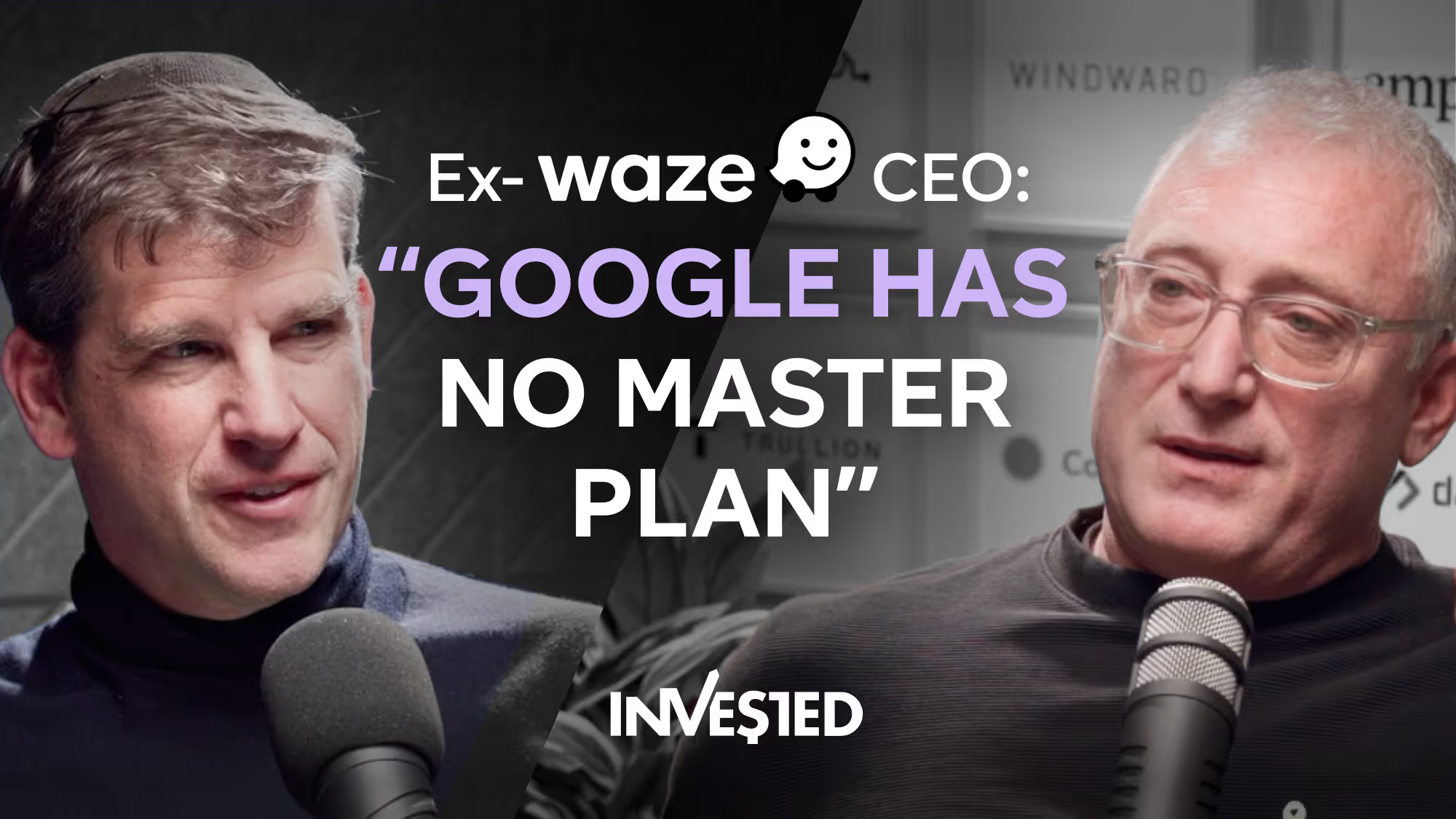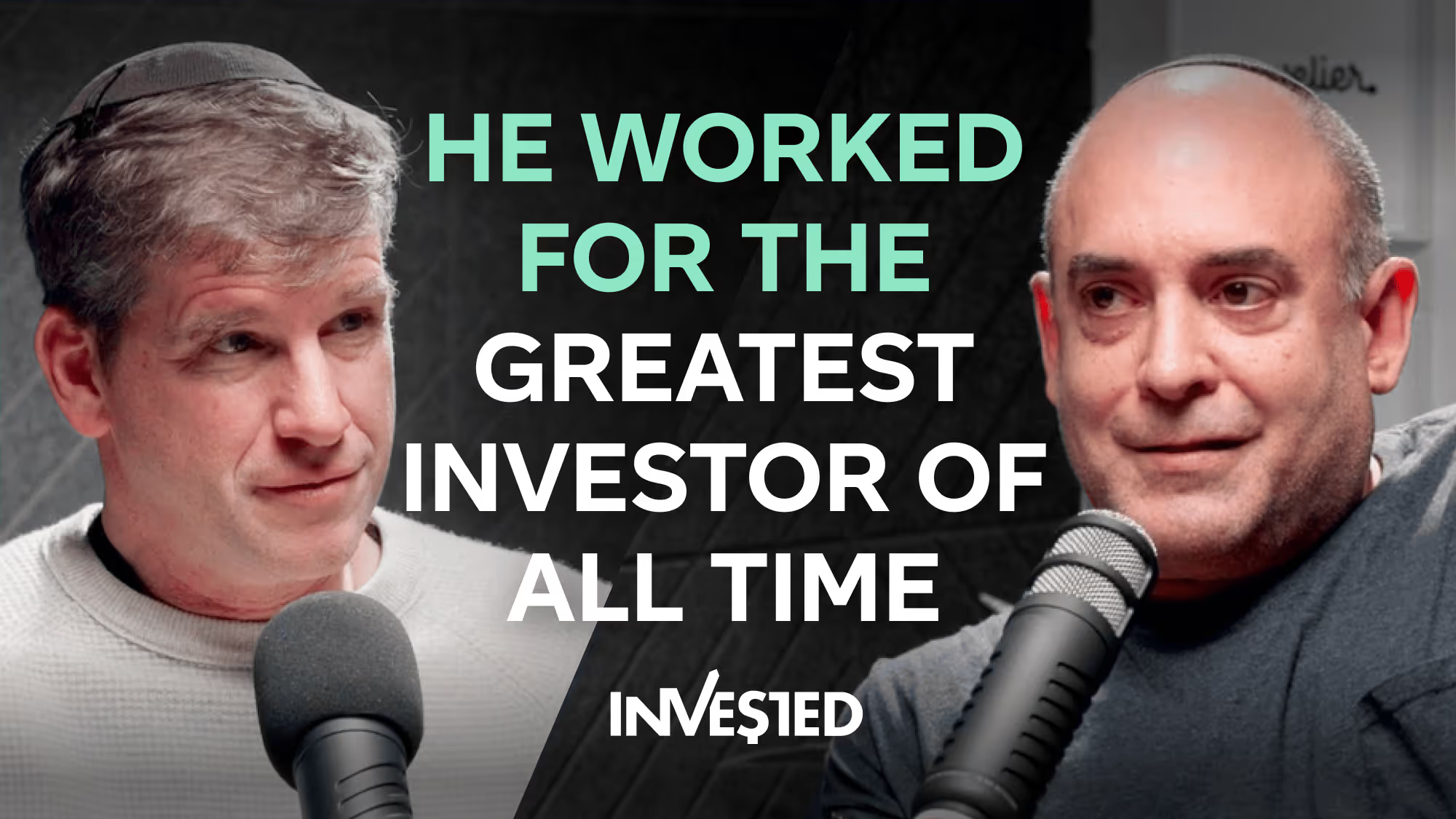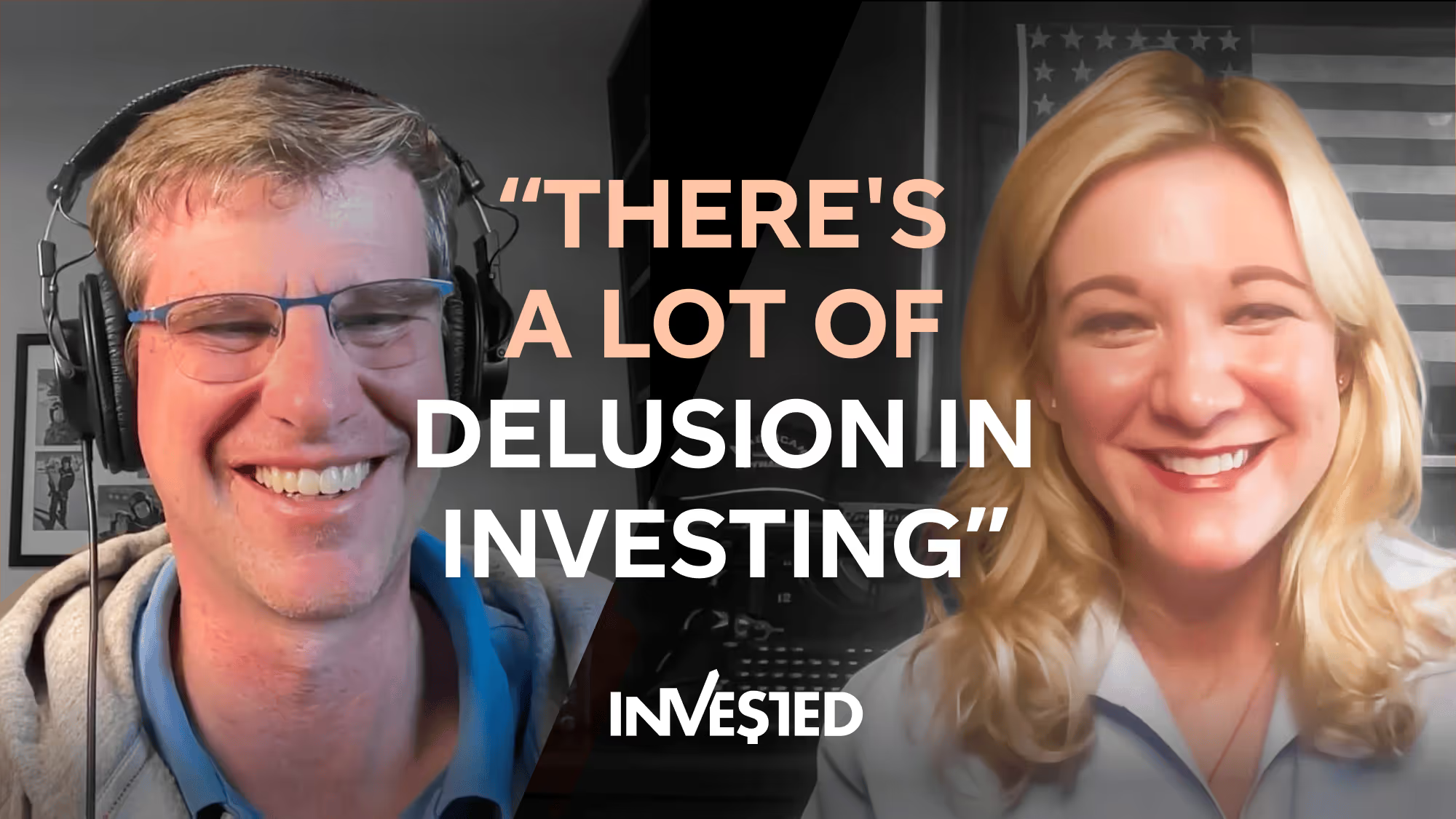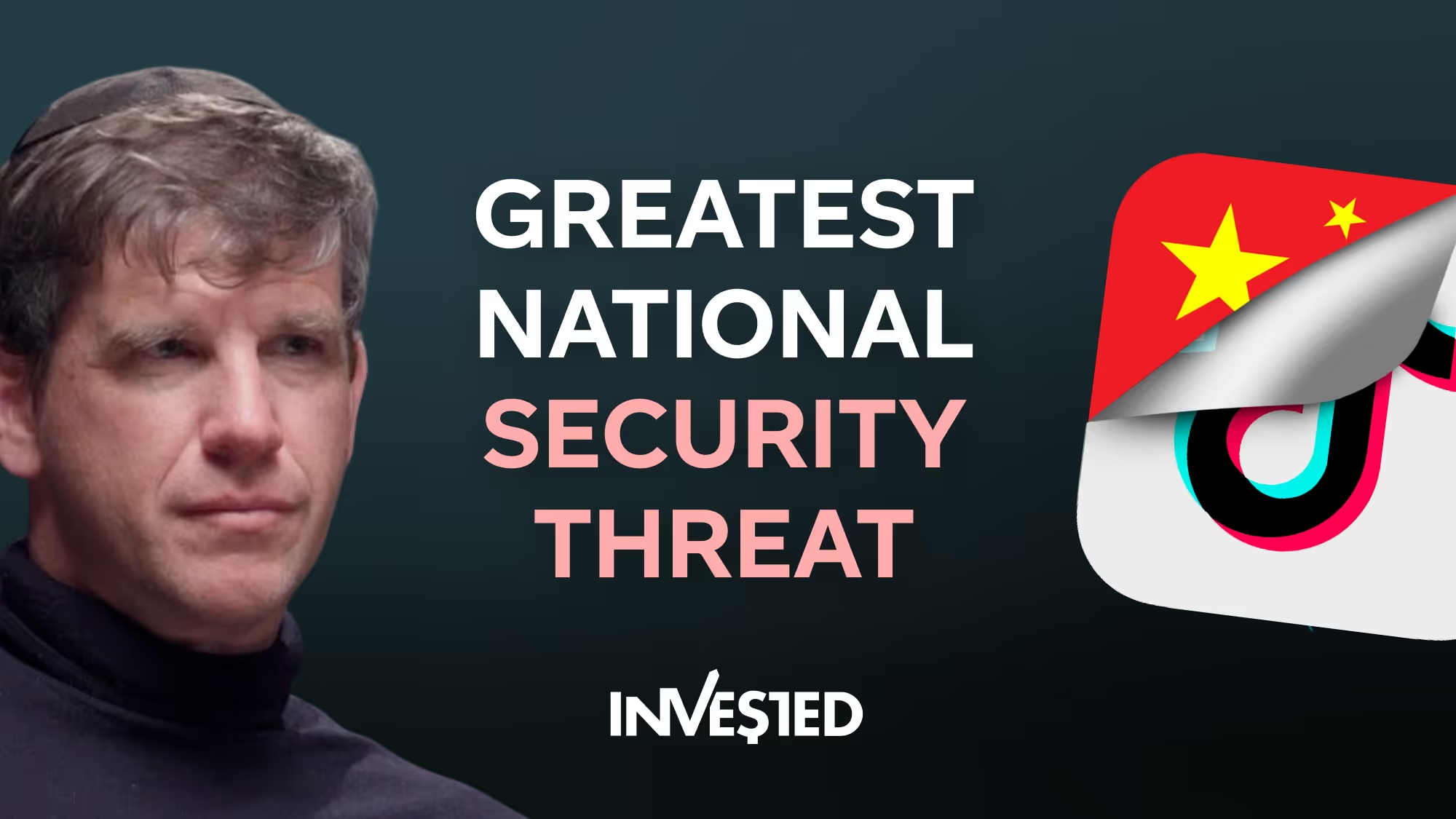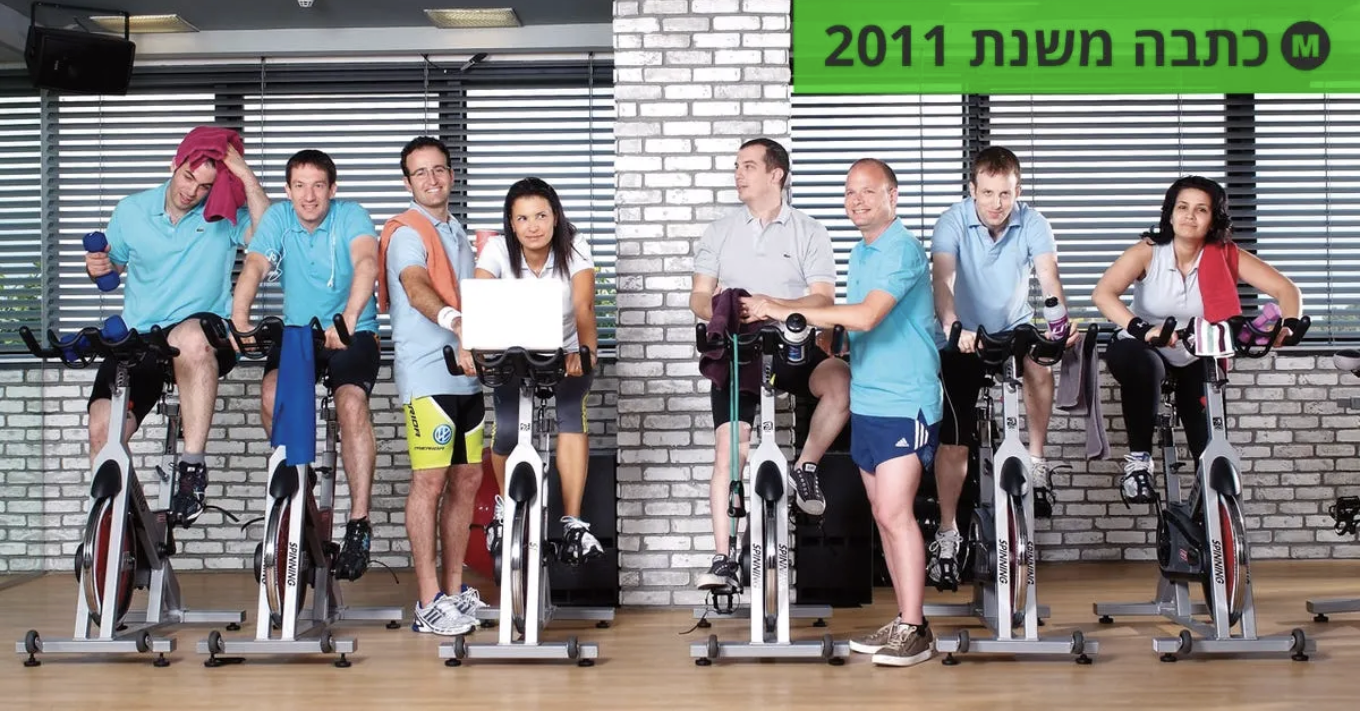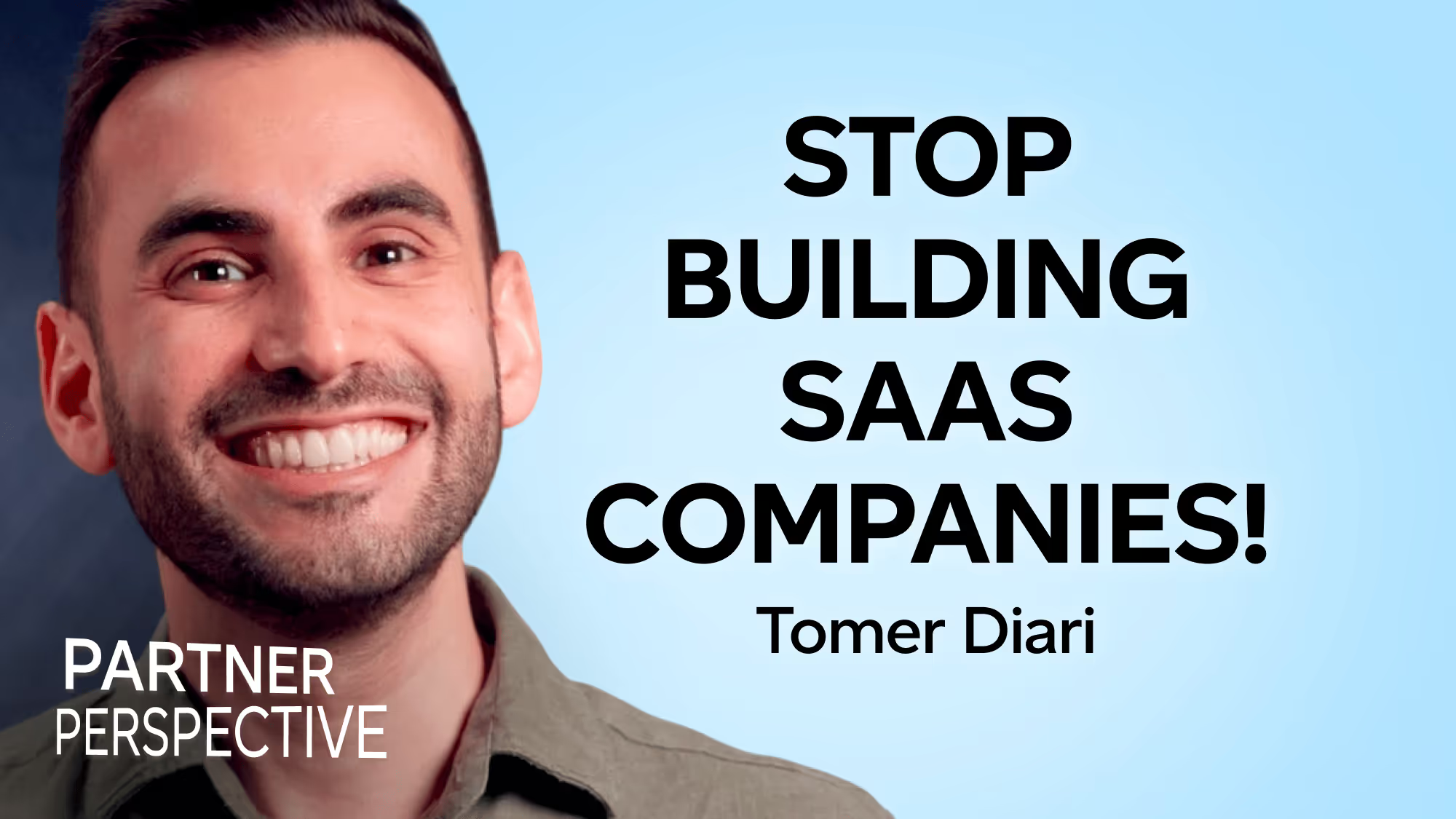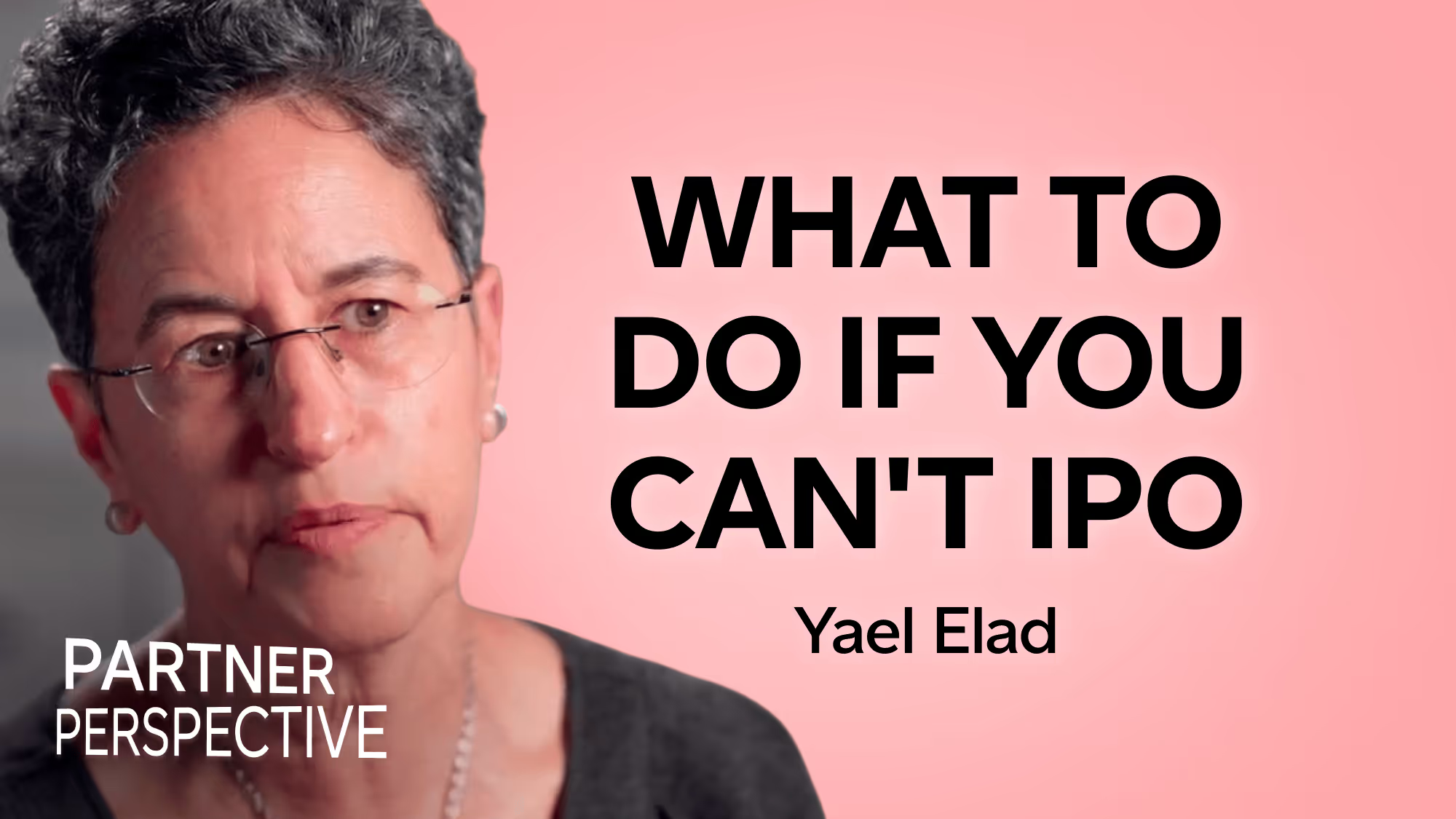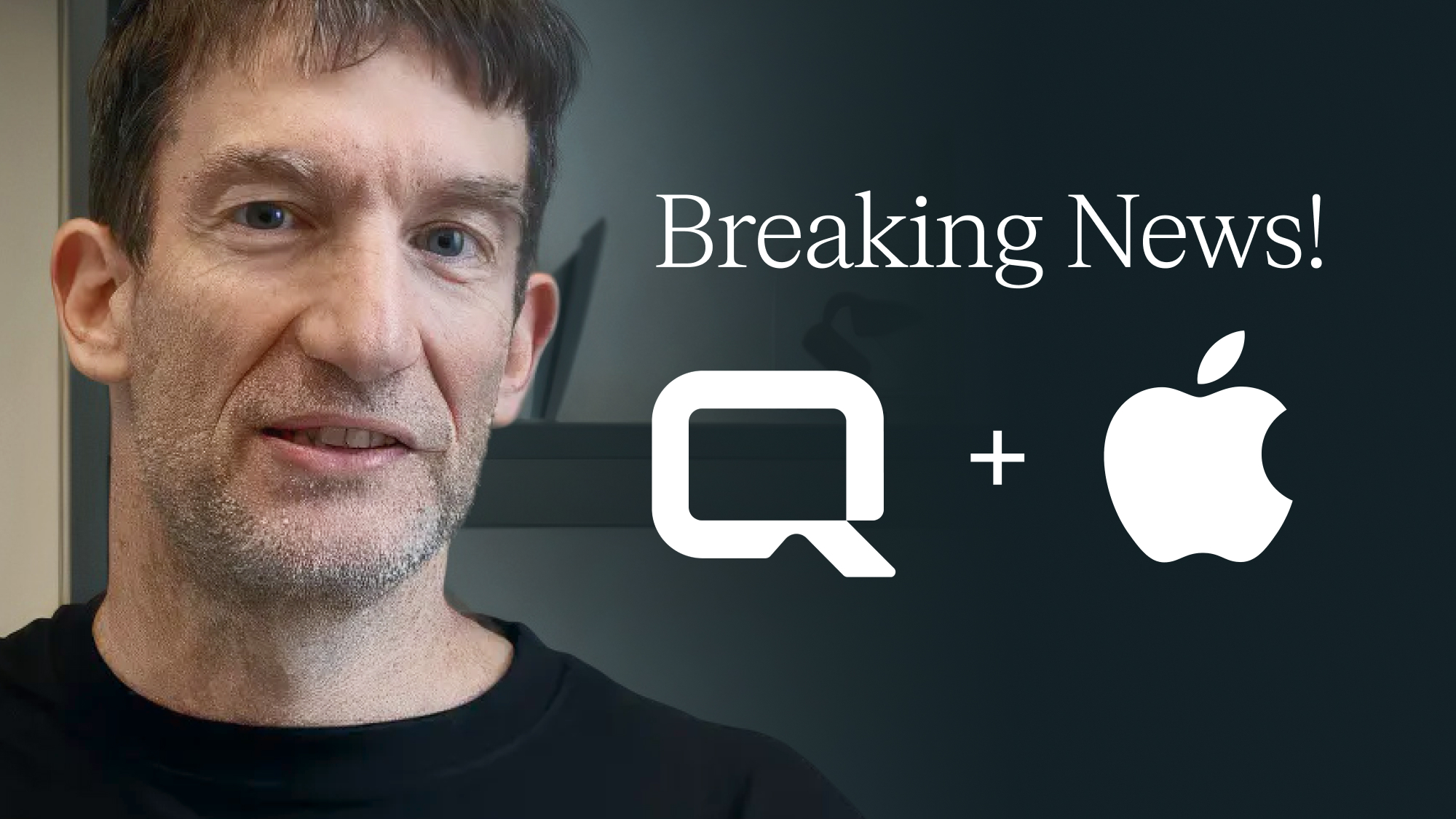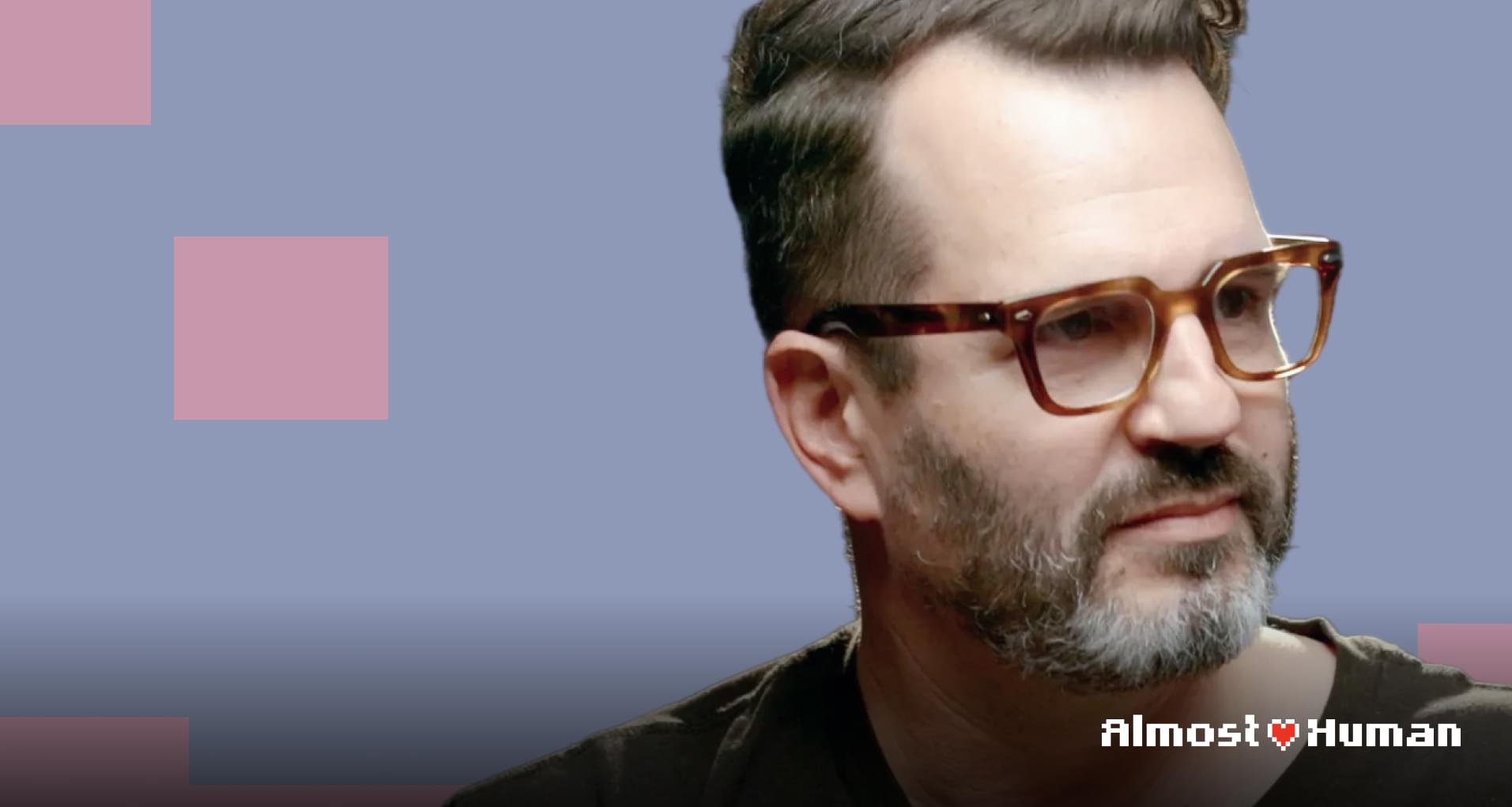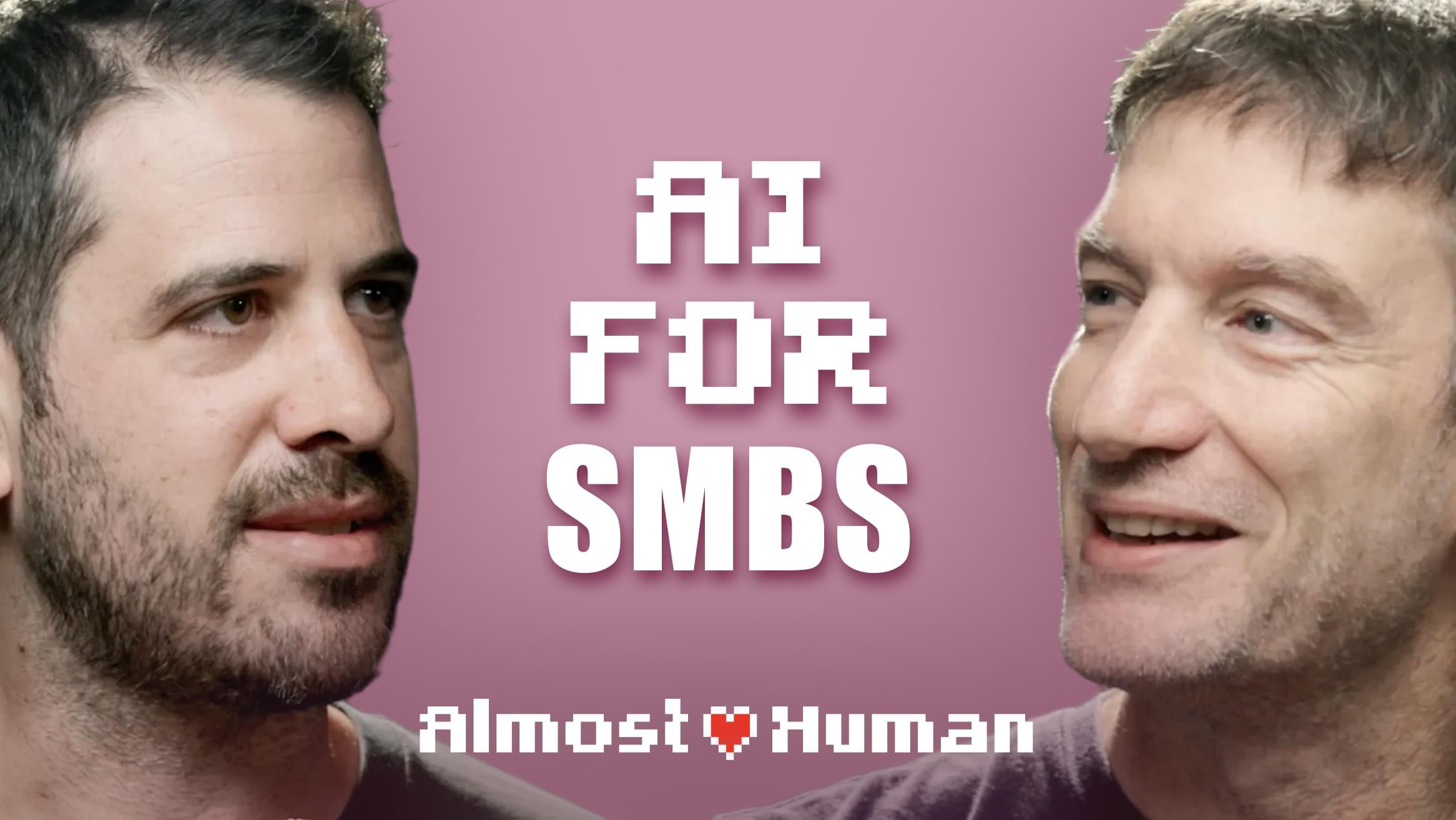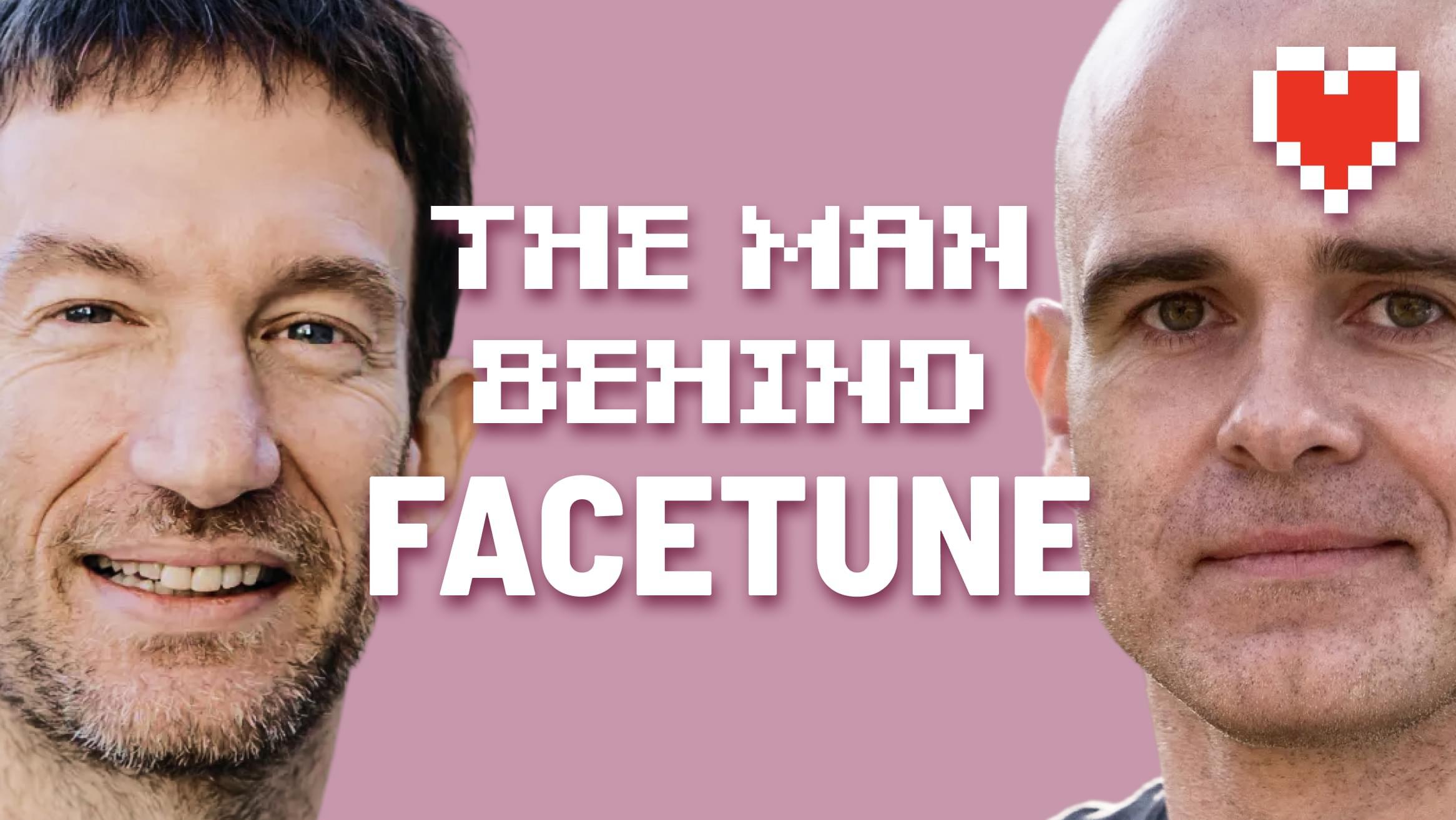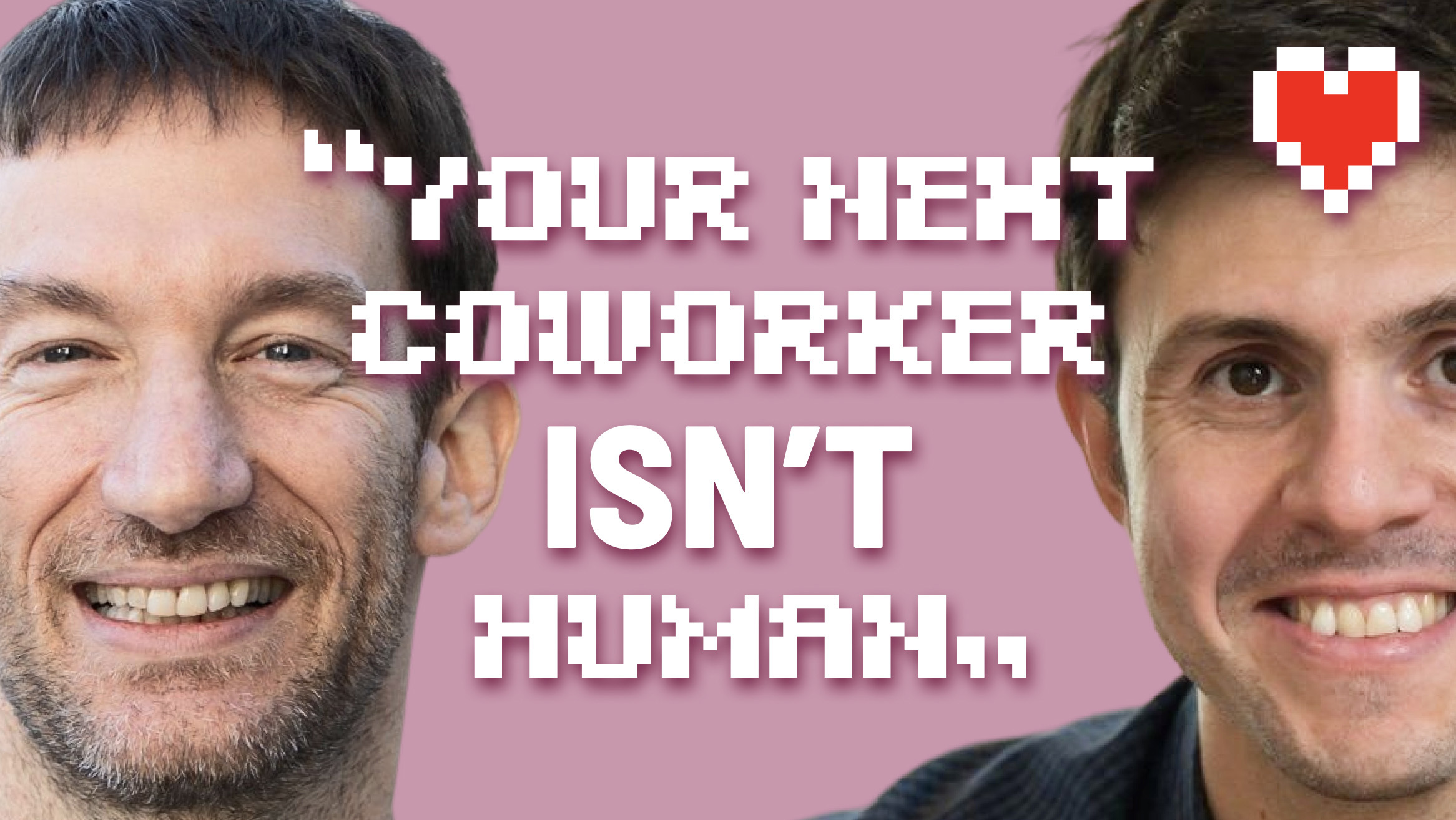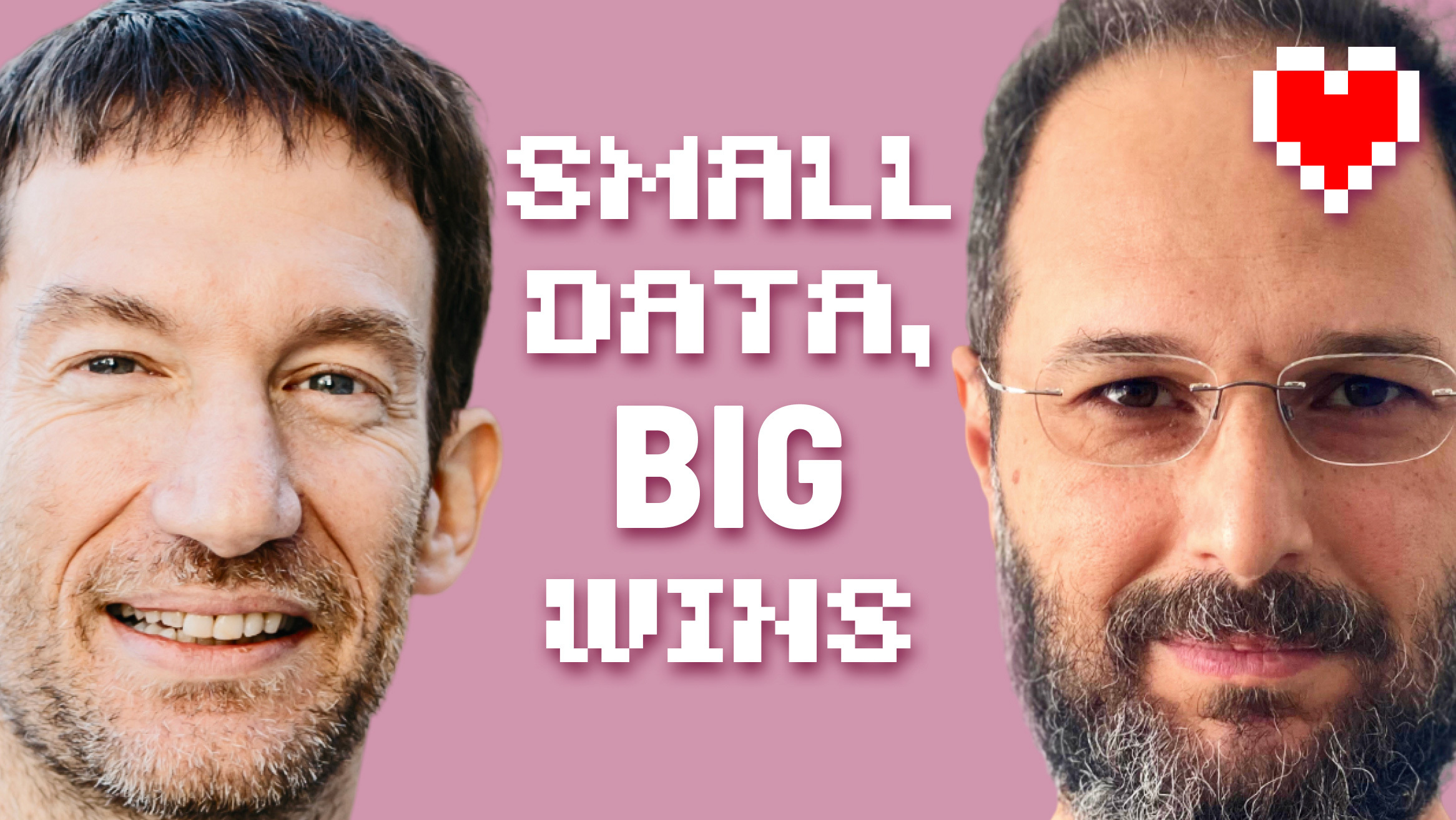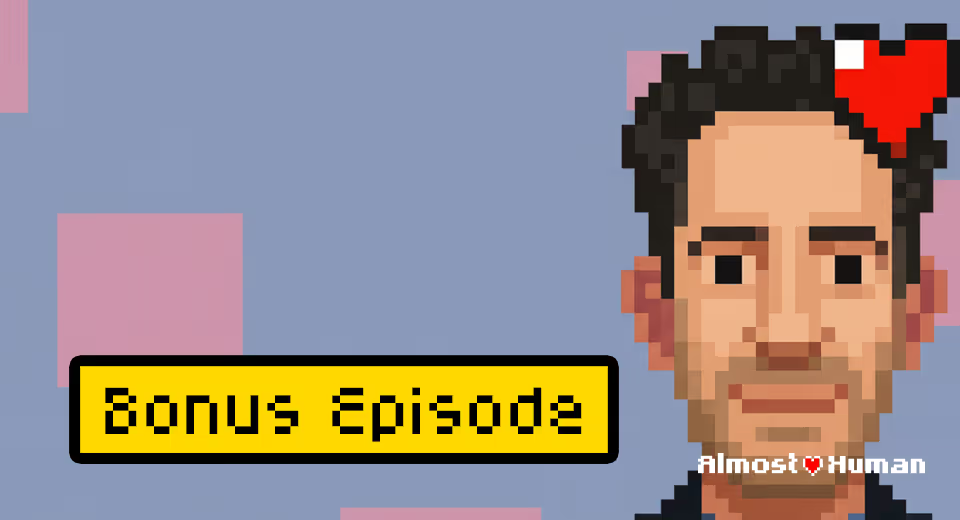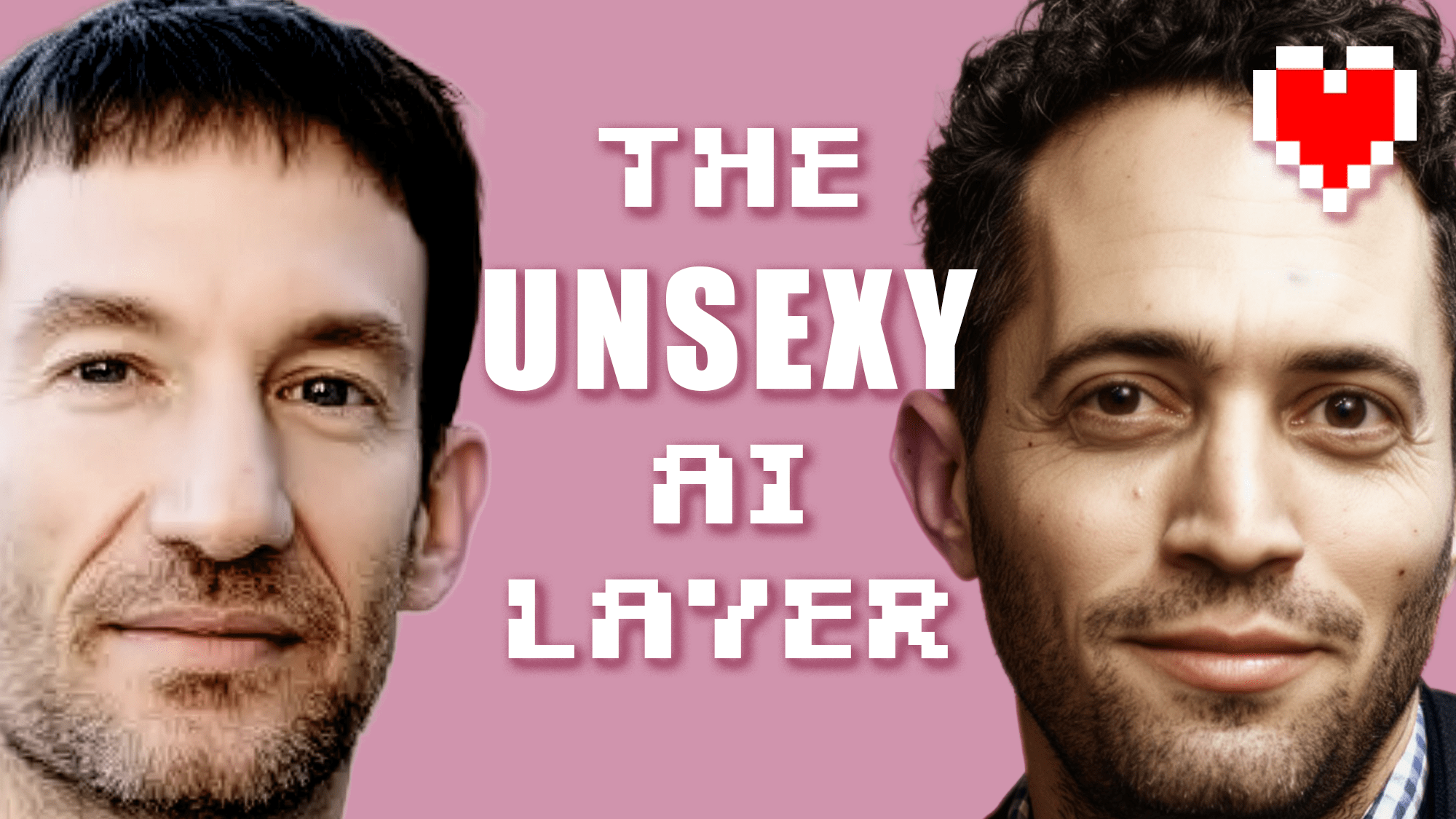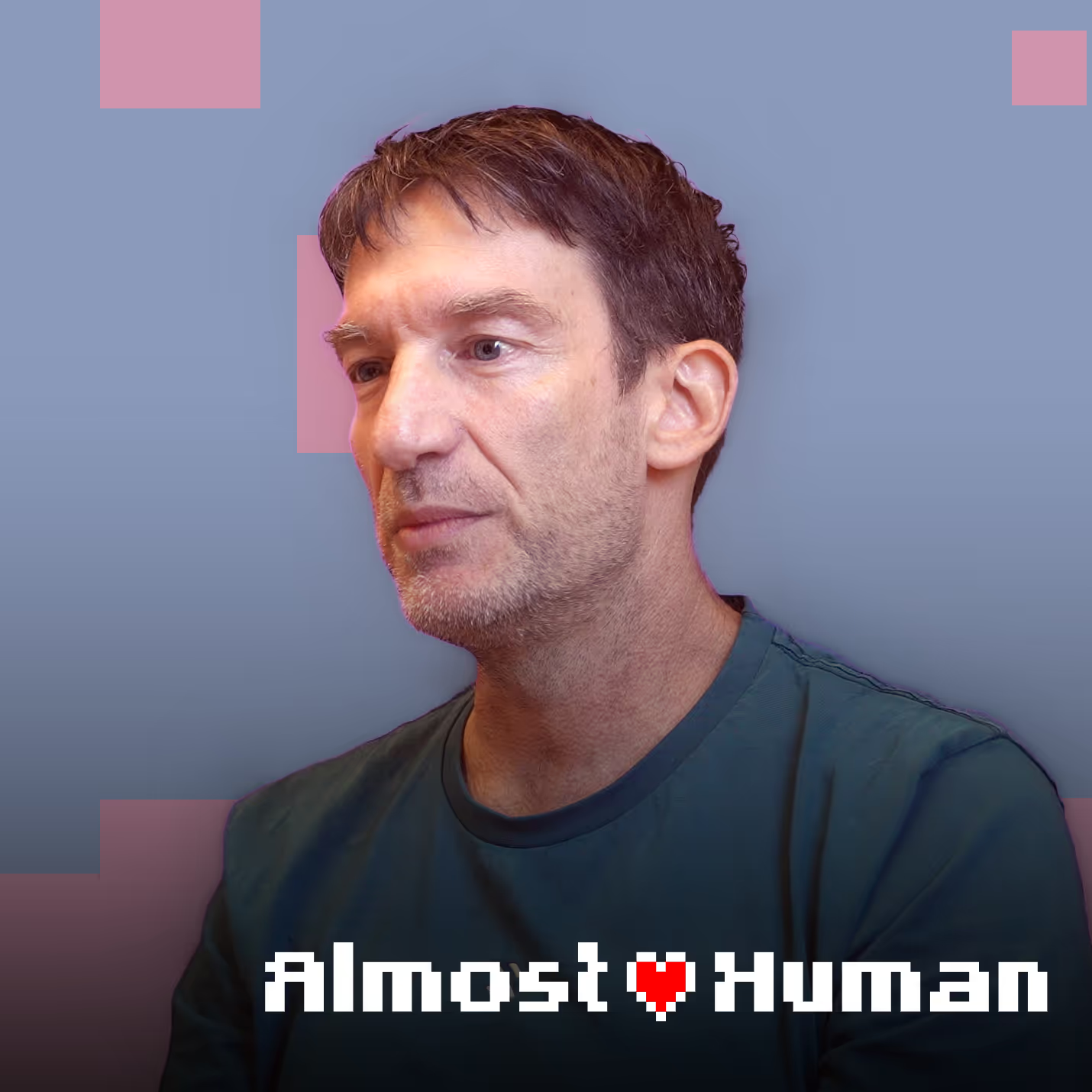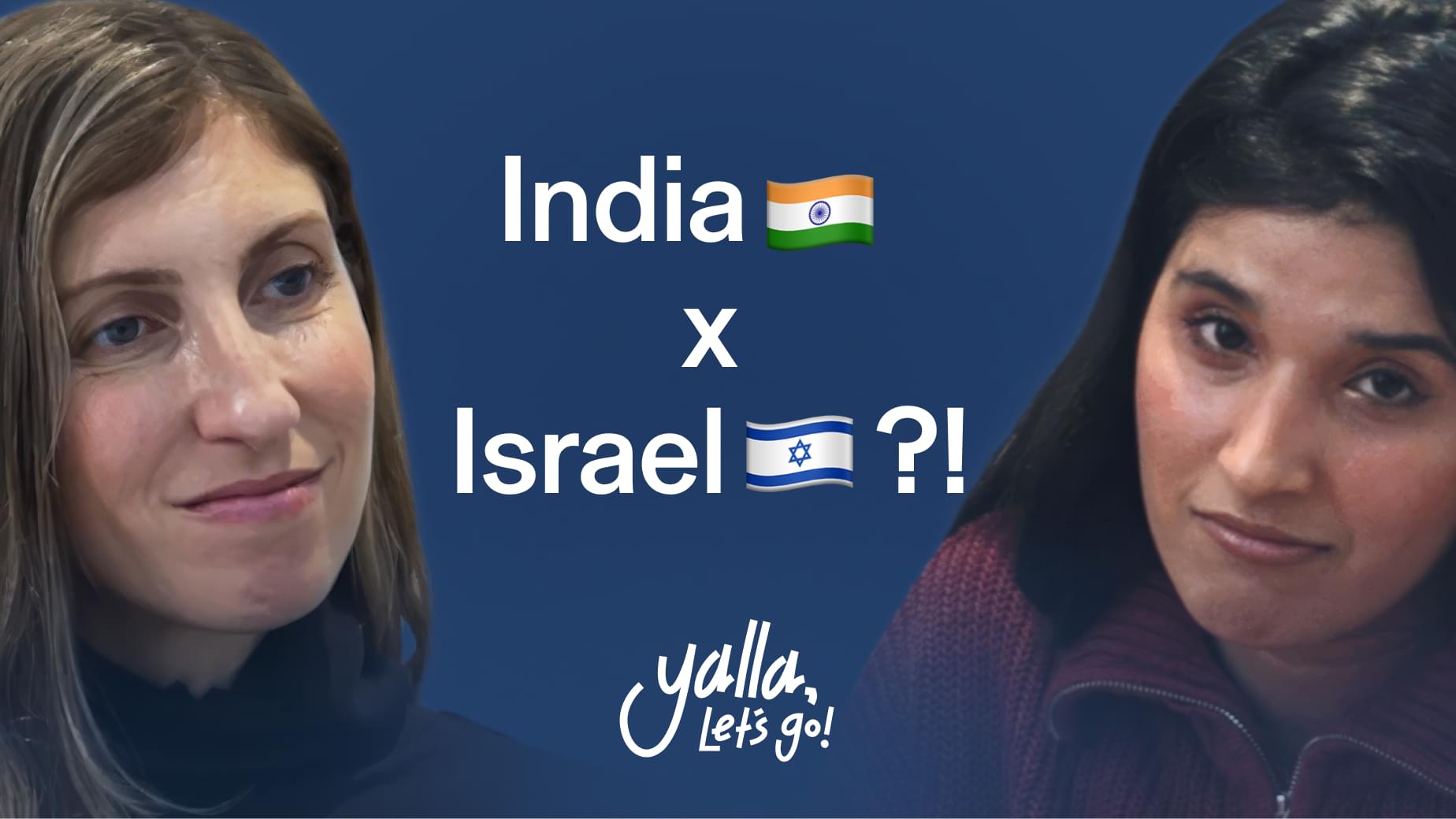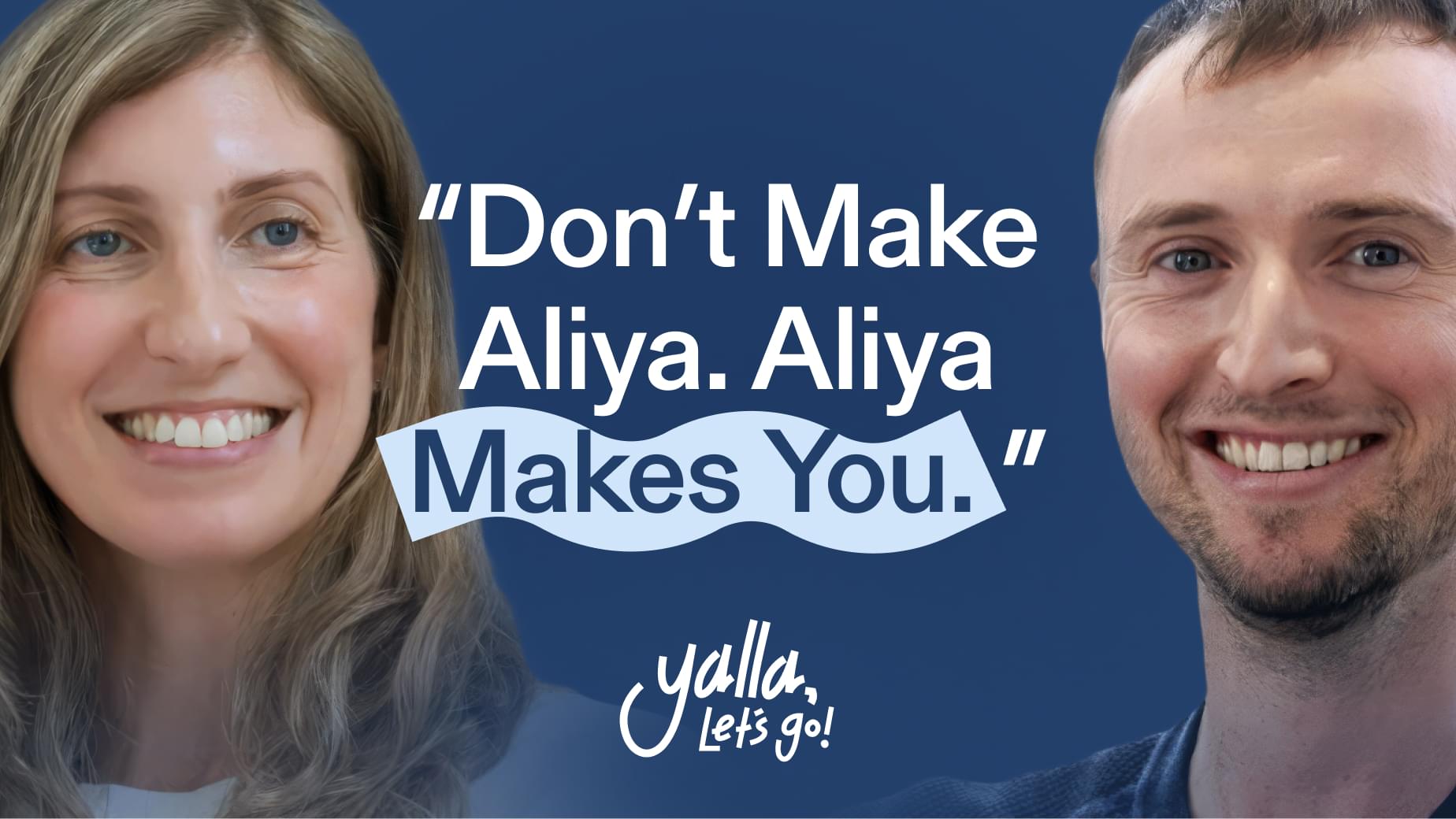Katie Stanton
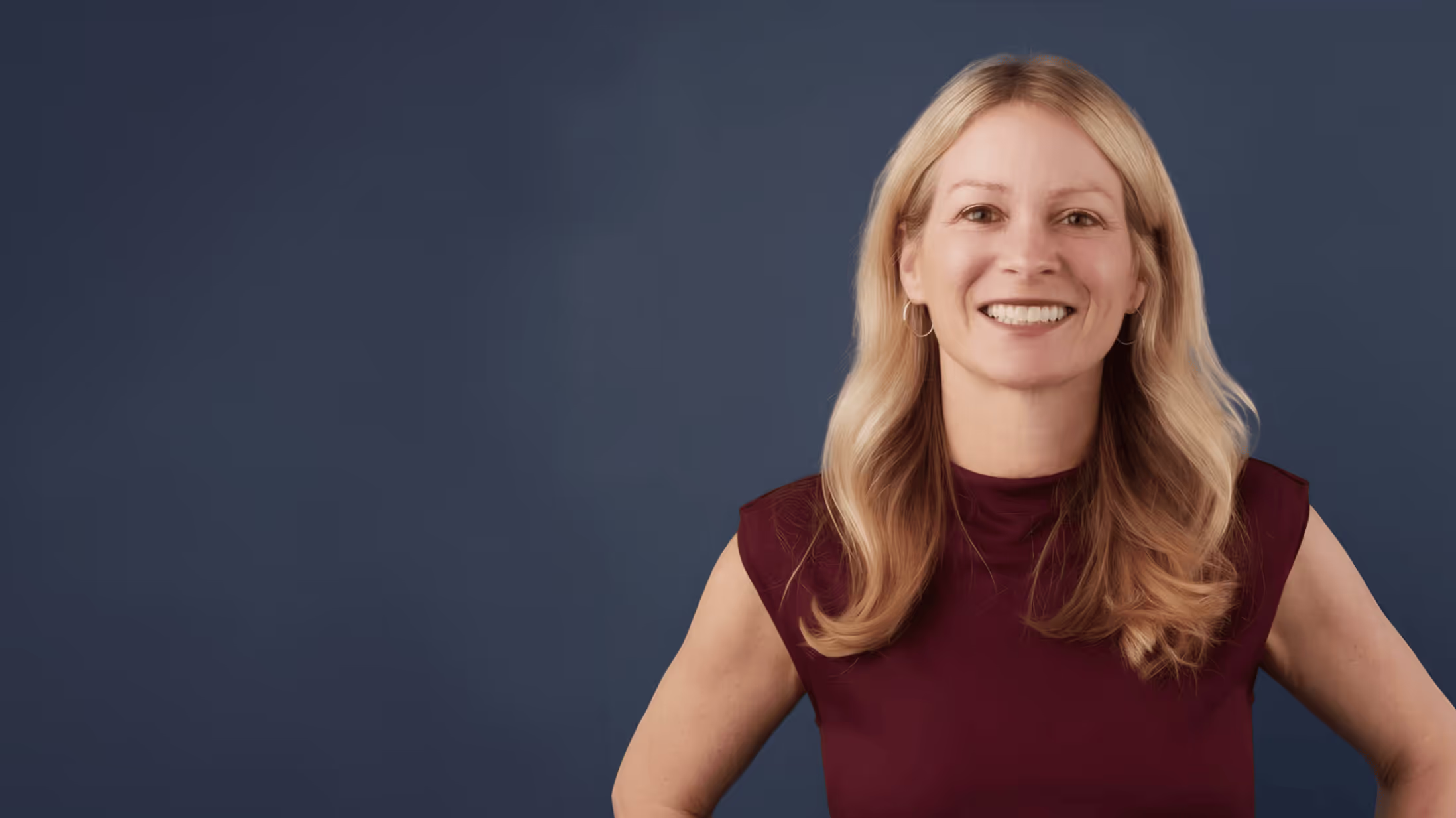


How can values create value? On this podcast, Michael Eisenberg talks with business leaders and venture capitalists to explore the values and purpose behind their businesses, the impact technology can have on humanity, and the humanity behind digitization.
Katie Stanton



How can values create value? On this podcast, Michael Eisenberg talks with business leaders and venture capitalists to explore the values and purpose behind their businesses, the impact technology can have on humanity, and the humanity behind digitization.
Katie Stanton



How can values create value? On this podcast, Michael Eisenberg talks with business leaders and venture capitalists to explore the values and purpose behind their businesses, the impact technology can have on humanity, and the humanity behind digitization.
Katie Stanton
Katie Stanton

Katie Stanton
Katie Stanton
- [00:00:00] Intro
- [00:02:57] The Value of Service
- [00:06:01] Moving from Private to Public Sector
- [00:09:06] Getting into Tech and Innovation
- [00:11:52] Inside the Obama White House
- [00:14:59] Challenges of Government Work
- [00:18:09] Twitter and Social Media Dynamics
- [00:20:54] Trust and Safety on Social Platforms
- [00:23:59] Future of Social Media and Community
- [00:40:48] Today’s Role of Media Companies
- [00:45:33] Trust and Mistrust in the Media
- [00:49:07] How Media Shapes Society’s Future
- [00:50:23] From Operator to Investor
- [00:54:00] Why Katie Started Moxxie
- [00:57:06] Facing Challenges in Venture Capital
- [01:01:21] How AI Will Change Healthcare
- [01:06:32] Health Tech and Regulatory Hurdles
- [01:11:08] Reflections on Life and Loss
On this episode of Invested, Michael hosts Katie Stanton, the Founder and General Partner of Moxxie Ventures, which is an early-stage venture fund.
Prior to Moxxie, Katie served in numerous executive operating roles at Twitter, Google, Yahoo, and Color. In addition to working in Silicon Valley, Katie served in the (Obama) White House and State Department and began her career as a banker at JP Morgan Chase. Katie sits on the Board of Vivendi, a French multinational media company headquartered in Paris, and previously served on the Board of Time Inc. Katie started her venture career as a Founding Partner of #Angels and has invested in over 100 early-stage companies including Airtable, Calm, Cameo, Carta, Coinbase, Literati, Modern Fertility, and Shape Security.
Please rate this episode 5 stars wherever you stream your podcasts!
Katie Stanton (00:00)
I used to joke to people that my experience working in government was like trying to run a marathon with sandbags attached to my leg, with everybody booing.
Michael Eisenberg (00:08)
You're a mom of three young kids. You're living in San Francisco. Why did you take the job to commute across the country to go do this?
Katie Stanton (00:14)
It was an honor. It was just the right president, the right opportunity, the right time.
I saw Secret Service, who was looking at me like, what's happening? I'm like, help.
I might not ever be let into China again. The challenge of Twitter is that it's kind of a mirror to humanity. People do a lot of good and people also do a lot of bad. That's what's so interesting about venture, right? There's something new all the time. It's constantly refreshing.
My God, how cool would it be to even work at a company called Yahoo! That just sounded fun.
I think that there's a little bit of a perception that the only way you can serve your country is joining the military. There's so many ways to serve.
Michael Eisenberg (00:50)
Welcome back to the Invested podcast. I am thrilled to have Katie Stanton with me. In fact, I was just telling Katie before we came on that tons of people said, “You need to have Katie Stanton on the podcast. You need to have Katie Stanton on the podcast.” And then by stroke of God, karma, wherever you call it, I'm in Los Angeles at a conference and who's standing next to me in the kind of vestibule outside the conference? Katie. So welcome on Katie.
Katie Stanton (01:15)
I'm so honored to be here. Thank you so much.
Michael Eisenberg (01:17)
It's great to have you. I'm going to ask you to do your own background, but I'm going to do a quick run of it, if it's okay. Katie is a former White House director, served in President Barack Obama's White House as director of citizen participation and a special advisor in the Office of Innovation. Former Vice President of global media at Twitter, co-founder of Hashtag Angels and Moxxie Ventures, which we'll dig into some, a bunch, coming up. And like me, began her career as a banker, although I wasn't at JP Morgan, you were, you served on the supervisory board of Vivendi and on the board of directors of Time Inc. What did I miss, Katie?
Katie Stanton (01:58)
I’m also on the board of Yahoo, which I really love and I'm super proud of.
Michael Eisenberg (02:01)
Right now, with Jim Lanzone and Aryeh Bourkoff, and that whole crew.
Katie Stanton (02:05)
Lanzone is the best. I mean, what a dream team. And it's so fun to have this front row seat to see this incredible iconic brand, the first job I ever loved. So I'm really excited to see it have this whole new chapter.
Michael Eisenberg (02:18)
We agree on that. I think I've known Jim almost three decades now. And actually the first guest ever on this podcast was Aryeh Bourkoff, who was also on the board of…What else do you want to tell us about yourself before we dig in?
Katie Stanton (02:26)
Aryeh is amazing.
I'm a proud mom. have three kids and three bonus kids. So I don't have as many kids under management as you. So I'm at six, you're at eight. But a lot of birds in the nest, and it keeps life really fun and entertaining and loving.
Michael Eisenberg (02:49)
Wait, are they all still in the nest?
Katie Stanton (02:51)
No, we have two graduates, two in college, one in high school, and one in middle school. Busy life.
Michael Eisenberg (02:57)
It's a busy life.
Busy life. As our kids have started moving out and getting married, I actually miss having them in the house.
Katie Stanton (03:06)
I find I miss having my tidy ones in the house. The messy ones, it's fun to visit them.
Michael Eisenberg (03:12)
I probably shouldn't say this on the podcast, but when one of our children left the house, my wife told our future in-law child, “Please take her, and the mess–it's now your problem.” So, yeah. What we always start with here is kind of, what is the core personal value that drives you? What's your core personal value?
Katie Stanton (03:22)
I think my core personal value is service. And I think life is just better serving others. It's the greatest sense of joy. And that can be in your profession. It can be in your personal life. It's in your family life. In a way, as a parent, you're in service to your children. And it's building a better world than you were given. And for me, that brings a lot of joy in work, a lot of venture.
We are in the services business. We are serving our founders, but we're also serving our LPs. And it's important for us to remember that, that every decision–and this job is so many decisions that you're making all day long. How do you spend your time? Who do you spend your time with? Who do you spend that capital with? Who do you spend that social capital with in order to build these deals and networks and go to market, all these different things. And so much of it is a services business and making things better for those that you care for.
Michael Eisenberg (04:33)
Where did you get this value from, that your life should be about service to others?
Katie Stanton (04:38)
I think my grandparents, and part of that was that they beat us both–they had 16 children. The Irish Catholic family in Western Pennsylvania, and they had 16 children. And as busy as they were and as little means as they had, they were always giving to others. And I just saw that and how, yeah, they didn't have much, but there was always room enough for everyone.
Now at night when you went to bed, you couldn't leave your bed to go to the bathroom or anything because someone else would steal your bed, because there were never enough beds. But it was just always filled with so much joy, and laughter, and love. And so that was a big takeaway that I had from my grandparents.
Michael Eisenberg (05:19)
My grandmother used to always say, she passed away a couple of years ago, “God save me from a quiet house.”
Katie Stanton (05:25)
Yeah, quiet houses are boring.
Michael Eisenberg (05:27)
They are. And so, did you grow up like a lot of grandkids going to your Irish Catholic grandparents house?
Katie Stanton (05:33)
I did and the flip side, my dad's side was Jewish, and a much smaller family. And so I had like this view into both worlds, and both were beautiful in their own way. I got all the attention at my dad's house with a much smaller family, but I was just filled with so much activity and love on my mom's side. You kind of play the cards you're dealt in life, right? And you try to see the best and what is given to you, and also see what could be better, and what are the things that you have at your disposal that you can make differently, and hopefully better for those around you, and you pay that forward.
Michael Eisenberg (06:12)
Do you think that your grandparents' religious beliefs, the Irish Catholic religious belief, it obviously led to 16 kids in some way, shape or form. Do you think that was also kind of critical for the focus on service, and what you ultimately inherited from those values framework?
Katie Stanton (06:34)
I think so. My grandmother went to Mass every day since she was eight, which is crazy to me. And that even with all these children, she would find a way to go to Mass. And it was very important to her to have this sort of structure, and have this faith, and also to serve that community, that she would volunteer and do other things. Like, how she did she have time for this? I can barely get my laundry done. So faith was very important to both of them, but particularly to my grandmother.
And on my father's side, faith was very important to them in a very different way. But I think it was that in service to something bigger than themselves, that life is filled with all these to-dos, getting your laundry done, getting your kids fed, getting your work accomplished. But there's got to be more. And there's more to life. And there's this bigger universe outside of what we do day to day. And so it's in service to that greater good and you know, not to get too woo-woo, but in that beyond. And so I think that's really important. And I think that allows us to get grounded, that when we have a tough day or when we have a great day, just know that some of these things are in our control. Some of these things aren't. And you know, playing the long game for that greater good and that greater destiny.
Michael Eisenberg (07:55)
I'm just putting it together now that you went from the private sector into government. Was that kind of background and values inherent, through religious service to the greater good, part of that decision?
Katie Stanton (08:09)
A little bit. And so I originally grew up thinking I wanted to do something in service. I had dreams of working at USAID or the Red Cross or Save the Children, all these different nonprofits. And I went to graduate school for international affairs and public affairs. And most of the students there had similar ambitions. I was in New York City, at Columbia, at SIPA. And part of that was I spent some time working in Kenya and I worked for a nonprofit. I worked on the Hill and did some work there for the Foreign Relations Committee. And I realized actually in service that I didn't have any skills. And especially in Kenya, we would go and visit some of the communities. And I was there thinking I was going to talk about an economic development project, and an environmental studies assessment. And the farmers in Kenya were like, my bananas aren't growing. How come? I have no idea. I'm from Peekskill, New York.
And then they’re like, “The elephants are trampling on our fences. What do we do about it?” No idea. And I realized I was just so ill equipped. I had no business being there. And it really, you know, put me on this new path to realize I need skills. I have this passion, but I have no skills to achieve this passion, and to do the service that I want to do.
So that's why I went into banking. And I realized that so much of these great ideas, like I really needed to understand the financial markets. So nonprofits are largely dependent on donors, either from government grants, from high net worth families, whatever, but you needed to understand where that money came from and then how to manage those different projects. This was my entry into banking. So I went into banking for three years, and that was great skill building, but there was no service to it really. Like I just wasn't very fulfilled.
So it was a little bit of a zigzag, which is life, right? Most of us zig and zag several times in our careers. And that was my very long answer, sorry, but long answer.
Michael Eisenberg (10:12)
I'm struck by the fact that you thought that a job at JP Morgan could help you with elephants trampling over the fences and the crops.
Katie Stanton (10:20)
Playing the long game, I really thought, like, okay, maybe if I do this for a couple of years, then I can go into nonprofit. But a funny thing happened while I was there, in that I was working on this training floor. It was pretty soulless and miserable, but I was learning a lot and I had worked with some great, great people. And as I'm on the training floor, I remember I had a couple of my Bloomberg terminals in front of me.
And the internet was just starting to take off. It was in the late 90s. And I remember I just had this aha moment. I started to go on Yahoo and I thought, my God, how cool would it be to A, find stocks on something called, on Yahoo, that sounds fun. And two, to even work at a company called Yahoo, that just sounded fun. And then I realized like, this is a moment in time–and you could just see the excitement, you could feel the excitement of the internet–and I found a friend of a friend of a friend who worked at Yahoo, pitched them on why they should hire someone like me from the financial services industry to help build Yahoo Finance. And they were like, OK, come on out.
So that was my move out to California. And really, I think that was the path that set me on the path where I am today, just loving new trends, loving technology, and loving how technology can provide a very important service to people.
Michael Eisenberg (11:41)
I think Yahoo is the parallel for the unripe bananas in Kenya at the time. Who was the person at Yahoo who ultimately kind of gave the offer for Yahoo Finance?
Katie Stanton (11:52)
His name is Mike Riley, who was an early product manager there, brilliant guy. And the team around us, Mike Bennett, Tim Brady, Jerry Yang, Tim Coogle–it was so exciting to go to Yahoo! and to California, frankly, for many reasons. It was new, it was refreshing, it was so much of a meritocracy.
I grew up in upstate New York–I think you're originally from New York as well, right–and New York is magical and amazing, but it's relatively structured. It's like, well, where did you go to school? What family are you from? Which church, which synagogue, da-da-da, do you go to? And you get kind of stuck in a bit of a box in DC as well. So where do you work as a lens to, are you Democrat or are you Republican? And then people box you in. I felt in California, people couldn't care less where I came from. They cared what I set out to do.
And I just thought that that was so refreshing and interesting. And there was so much exuberance about what Yahoo! could build at that time. Of course, there were so many roller coasters up and down, but it was a really special moment. Also, I might have also been very excited about having free bagels and free coffee. I thought, my God, can you believe it? They gave me those free bagels on Tuesdays.
Michael Eisenberg (13:14)
That was the beginning of my career, in tech and VC also. And I still remember like those early internet conferences in like ‘96 and ‘97 and Jerry was there, and Fila was there, and TK would turn up, and Mark Andreessen, before anyone knew who he really was at the time it was, it was early. It was exciting. And Silicon Valley was abuzz. Feels a little bit like it does right now, with AI.
Katie Stanton (13:40)
Absolutely.
Michael Eisenberg (13:44)
I want to come back to Yahoo! and AI and the buzzy-ness right now soon. But I want to go back to the kind of service pieces. I actually pinged Dick Costallo, who actually had a super interesting question. There's all these people transitioning right now from the private sector to the public sector. In fact, a friend of mine who's one of the people who's gone into the new administration told me they're getting high-end real estate in Washington has become super expensive. There isn't a lot of them. There are a lot of people with private sector wealth coming to Washington. What is the best kind of advice you would give to people who are now transitioning into the public sector, or people thinking about transitioning to the public sector from the private sector, and particularly tech and Wall Street where you were?
Katie Stanton (14:31)
First, I think it's awesome. I think more people should serve their country. And I think that there's a little bit of a perception that the only way you can serve your country is joining the military. There's so many ways to serve. And it could be serving at local, state, or federal government. And we should make it easier for people to serve. So I applaud everyone who has left their very lucrative and comfortable jobs in private sector to take a very hard job in the public sector where you're not paid very well, everything is hard.
I used to joke to people that, you know, my experience working in government was like trying to run a marathon with sandbags attached to my leg with everybody booing, and everyone's mad. So it is hard. And so I respect that. And I appreciate people willing to do this. So my advice would be to be as transparent as possible.
I actually wrote, I think it was on LinkedIn or Twitter, maybe both, a post about this and tagged David Sacks. So I've never met him and I think he's a smart guy. We disagree on probably a lot, but I'm really glad to see him doing public service. And some of the best things that you can do is, if you are a leader, to be transparent about what is it that you are trying to achieve, how you're going to achieve it.
Take the feedback along the way, because you will get some things wrong. But I think as long as you are transparent, and honest and accountable, you will be successful and have an easier time.
Michael Eisenberg (16:08)
What was the hardest part about it, you know, coming out of the private sector and going to Washington, other than kind of being in the spotlight, and questioned and booed?
Katie Stanton (16:17)
For me personally, at the time, my kids were really young and I was commuting from San Francisco to DC, which was horrible. But I think on the professional side, I think it was trying to do the best job that you can within the constraints of the environment. So for example, I thought it'd be so easy at the time, this is gonna sound like kindergarten, but at the time it was, and this is in 2009 after President Obama got elected.
So I joined in January 2009. And we're like, okay, let's go fast. Let's get the White House really going on Twitter, and LinkedIn, and YouTube and every platform imaginable. Let's open up the government. We created data.gov, and tried to get every data set available, all the APIs available, ready for anybody to program on it. And a private company could have done this in maybe, you know, like a couple hours, a week.
But it took us a while, because you have the Presidential Records Act. What do you do with every like, and retweet, and share? Like, that's a presidential correspondence, technically. You're like, well, we can't passably, like, we don't need to save all that stuff. But if you read the letter of the law, there's an argument that maybe you should. And so, you know, just trying to be respectful to the law while also trying to maintain the goals of the government. And I remember, you know, President Obama, I think his first memorandum, was on creating the most open and transparent government. And so trying to do that within the constraints of the law was really hard. So, you know, trying to move–I left Google for the government, you know, it was just night and day in terms of how quickly you could move. But at the same time, it was an honor of a lifetime to be able to serve and have that front row seat to history.
Michael Eisenberg (18:09)
I've got to ask a few questions. All right, you're a mom of three young kids. You're living in San Francisco. Your kids are in school in San Francisco. Why did you take the job to commute across the country to go do this?
Katie Stanton (18:21)
It was an honor. That, oh my gosh, I could have this opportunity to serve this president who I had so much respect for. And I felt that I finally had some skills that I could deliver. Hopefully the president was not gonna ask me about bananas and elephants, but you know, I figured we would be okay there. But it was the right time in my career, this great opportunity to serve.
And I also knew at the time it was short lived, that I didn't want a career in government. It was going to likely be a two year opportunity. I only needed a commute for a few months with my kids, and then we all moved to DC. And so that was okay, but it was just the right president, the right opportunity, the right time. It was funny though, because in terms of transparency, I had Google stock, and I'd worked at Google for a number of years, and I sold it all.
Because that's what the administration told us to do. Especially if I were to work in technology, I couldn't own any technology stocks. I couldn't even put them in a blind trust. I just had to sell them. Probably the most economically stupid thing I've ever done, but I did it. And I kept thinking, okay, well, there'll be another time. I look at some of my friends who have stayed at Google or didn't sell their stock and, you know, they have a different life than I do, but it's okay. No regrets.
Michael Eisenberg (19:49)
Wow. How did you meet the president? Like, why did he offer you the job?
Katie Stanton (19:55)
Yeah, I had volunteered on the campaign. And so I had only met him a few times. And mind you, I wasn't the most senior person, so I wasn't in there day to day. But I had met him during the campaign. And during the transition, I knew a number of people who were helping on the transition. Some had worked in technology as well, and they had nominated me to work in the administration. So I was very fortunate to have known a lot of people closer to the president than me, And then had this incredible opportunity.
And I'll share to you this one story, and it's a very small story, but I think it's these behind-the-scenes moments that really reveal people's true character, not what you see in front of the podium. And that was, I was staffing the president on his first interview with the team from AllAfrica, which is obviously an African-based media organization. And it was the first interview with an African American president, and there was a lot of excitement for this.
But from the president's side, I mean, this was like the smallest thing he had that he's working on, you know, the economy and health care and a war with whomever and all these other things. But there was time in his calendar for, I think it was a seven minute interview. So every single detail of the president's life is carefully curated, and debated, and negotiated and so forth. And I was on the hook for staffing him for the seven minutes. So I was prepared, AllAfrica was prepared, the president was prepared. I was in the West Wing as we're getting the room ready. And maybe halfway through this interview, there's this big boom, and Secret Service runs in, everybody's in a quick panic, and one of the light bulbs had exploded. And the poor, there were only three people from All Africa and they're in a panic, you know, they're sweating profusely. Time is money, and they're not going to get any extra time. And I was just like, God, like not on my watch. This is terrible. And I asked, “Do you have a backup?” He's like, “Of course.” And so, you know, he's quickly trying to fix everything. And President Obama was cool as a cucumber. And he said, “Don't worry, take your time. It's fine.” And just that grace to this reporter, knowing that this is probably the most important thing to happen in this reporter's career to date.
I just thought that was so magnanimous, and so important, and just something that I've always remembered in terms of importance of true character, and empathy, and compassion, especially when you're in a position of power like that.
Michael Eisenberg (22:33)
Now, I just want to take a second to note that when you described how you got to Yahoo!, a friend of a friend of a friend, and you described how you got to Obama’s White House, I volunteered, wasn't that senior, but I knew the person was on the transition team, et cetera. I often point out to people that early in your career, the most important thing to do is network and meet as many people as possible. And even if it's the loose connections that end up kind of getting you to where you need to be. Is that something you've experienced even more than I'm describing in your career?
Katie Stanton (23:02)
100%. I think about this all the time now as a parent, I talk to my kids about this. It's sort of the importance of compounding, right? And it's compounding, normally we think of finance and compounding your net worth and investing, but it's in people too. And you building that network, that network does compound. Where you went to college matters. Where you went to grad school matters. Where you pick those early jobs matters. And if you're fortunate enough to be at the right place at the right time, that, wow, you could just hit the mother load. And so I felt very lucky that at Google, at Yahoo! for sure, but Google was sort of like, you know, the lottery of network.
And I was fortunate enough to be in this class with Elad Gil, Susan Wojcicki. Sundar Pichai, Marissa Mayer, Brett Taylor, all these incredibly smart, talented people who were still early in their careers. And now I just feel so fortunate to know them. And so I do think network is important. It's something that is important to me to this day with Moxxie and doing venture. That network really matters.
Michael Eisenberg (24:23)
How did you get to Google?
Katie Stanton (24:26)
It was funny, because when I was at Yahoo!, I loved Yahoo!. It was the best job I had ever had. And I thought, well, what could possibly be better than Yahoo!? And I had just had twins. And so I had three kids under two, which is not really recommended. That was a lot. And I was on maternity leave. And then I thought, well, this is really hard. Maybe I'll stay home a little longer. I stayed home a little longer and realized, no, this is really hard. I need to go back to work. That's easier.
And I thought about going back to Yahoo!, but I could see Google’s slope and how fast it was growing. And that was another, I think, just like hustle of, who do I know at Google? And it was a friend of a friend who was a recruiter who had helped me get my first interview. And I think I had 14 interviews. I was breastfeeding one, maybe both of my twins at the time in a closet, trying to do this interview and hoping to God that they couldn't hear that sound of choo choo choo choo choo. And you know, I got this job and it was awesome. There is another level of vibrancy at Google. The same kind of optimism, but another level of speed and focus that I was really excited to be at. So I was at Google for six years. The other fun fact I didn't think about at the time, but now I realize–all of my managers at Google were women, amazing women. So Susan Wojcicki, Marissa Meyer, Sikunder Singh, Joan Braddai, Megan Smith. I might be forgetting one, but I think that's it. Five amazing women at Google who were all extraordinary in their own regard.
Michael Eisenberg (26:12)
And Megan also ended up at the White House.
Katie Stanton (26:14)
She did. And it was funny, because at the time I got the job, I was working for Megan and we were doing a few layoffs at Google. And I remember Eric Schmidt telling us, do whatever you can to save your top talent, but we're going to have to get rid of people who aren't great, and not performing, blah, blah, blah. And maybe a week later, I get the tap to join the White House and I tell Megan and I was like, “Should I take this job?” And she's like, “You should totally take this job.” And then I realized like, “Wait a second, am I not top talent? Are you guys trying to get rid of me? Is this a plot twist or something?” And she's like, “No, no, no, you should really go.”
So it was great. And, I remember too, talking with Eric as I left, and he had given some really good advice, and he's been active in both administrations and you know, talking to many political candidates, but he gave me good advice, which I think about even to this day is that, just get some quick hits, like get in there early. Like it is going to be really hard to get a home run in the White House, but if you can just get to base a couple of times and just get like a couple of hits in there, like that'll be successful in moving the agenda forward. And that's what we did.
Michael Eisenberg (27:26)
I've got to ask you, you told the All Africa story, which is a crazy story for the people filming, but what's the craziest story about your time in the Obama White House that I need to know?
Katie Stanton (27:34)
Maybe crazier was when I staffed the president on his first town hall in China. And I was so excited, and so honored that I got to do this. Just, again, having this front row seat to how things get done. We were in a hotel for maybe two to three weeks prior to the event, where every detail from how he was going to drive from the airport to which location would be host to this town hall, to the attendees. Every little detail was heavily negotiated. And I had to work with a local government, and we all had our opinions. And again, every little detail. And I lost on almost all negotiations with my Chinese counterparts, because they're very powerful. They were the host. But we had a few tricks up our sleeves.
And so the major trick–again, this is so minor, but it was very important to me at the time, was that when the president enters the building, the presidential seal of the United States is placed on his podium. And so that was something we needed to do. But my counterparts didn't want that. They wanted–I think it was at the Shanghai Science and Technology Museum–they wanted that seal to be on the podium. And we had fought about this all week long, and they were like, “No, this is what we're going to do.” I was like, okay, I think it's a law and a regulation that this seal has to appear and it can't not happen under my watch. I just can't let that happen. And so as the meteor, they were coming in, and we're all getting ready for it. And I knew the president was in the building. I had my earpiece, I'm like, Renegade has entered the building. And very quickly I ran up and switched it, so the presidential seal of the United States of America could be there.
And I remember seeing my counterpart, the other side, like, “No!” And so he came running across, and had the other seal and tried to switch it. In a flash, I saw Secret Service who was looking at me like, what's happening? I'm like, “Help!” And they told the guy like, “Sir, stand down, stand down!” And so they came running out. The press is coming in, like, wondering what is happening. And it was too late, and I won. And so I might not ever be let into China again.
Michael Eisenberg (30:01)
I can’t believe you were let out of China after that.
Katie Stanton (30:03)
Lucky, very good question because I was so nervous about it. He was so mad. I got to ride in the presidential motorcade, and got straight on my flight.
Michael Eisenberg (30:15)
Okay, so you know, Dick Costolo asked me to ask you that question. I think that's a pretty good answer. That'll qualify even for improv Dick.
Katie Stanton (30:22)
I don't think he even knows this, so he’ll appreciate this.
Michael Eisenberg (30:26)
Tell us about the transition to Twitter.
Katie Stanton (30:28)
Yes. So, well, it was funny because not only–here's my double whammy–not only did I leave all my Google stock on the table, I had talked to Ev about joining Twitter in 2008, which would have been very early. And then I was like, “No, I am an economic genius, and I'm going to sell all my Google stock, and I'm not going to join Twitter in 2008. I'm going to go work for the federal government for $82,000 a year.” So, I had gone–again, no regrets–but after my two years of serving, which was amazing, I really miss California. My family misses California. And I miss working in tech. And I called Ev back, and Dick, who had joined since, and said, “By any chance do you have a role for me?” And they're like, “Yes. Would you like to help build Twitter around the world, Twitter International?” Like, oh my God, dream job.
Michael Eisenberg:
Just not in China.
Katie Stanton:
Just not in China. So yeah, they were like, “Deal.” And so we moved back to California, and I joined Twitter in August of 2010, which was amazing.
Michael Eisenberg (31:33)
By the way, we should tell listeners–we don't have to take up a collection for Katie. She's going to be okay. Even though she sold the Google stock and worked for $82,000 and missed Twitter in 2008, Katie will be okay. Don't worry.
I want to actually start on today's Twitter. So you were there in Twitter, I guess it's now 15 or so years ago. And I'd love to hear what you think about how Elon has taken Twitter. I imagine if you don't agree with Sacks, you probably don't agree with Elon much on politics either. What do you think about the direction he's taking it in and what Elon's done with Twitter?
Katie Stanton (32:04)
You know, it's funny, because I think directionally, a lot of us agree on things. You know, can Twitter be more efficient? Yes. Can the federal government be more efficient? Yes, of course. I think it's the how where we tend to disagree. I do think Twitter, where it's gotten better, has been the use of AI. I think Grok is great. And I think all these different platforms are really helpful, really useful, really valuable. Where it has not been great is that, at least my feed is very far right wing suddenly. Like these are a lot of voices, and I feel like it's not there to inform me, it's there to sort of irritate me. And that's a bummer. And a lot of the people that maybe I had mutual follows with, they've left–well, not maybe, certainly they've left. Maybe they're on Threads or a Bluesky, or other things, but I still feel very loyal to Twitter. I want to stay on Twitter. I love Twitter. I think it's a great platform. I think it's important to have a place where people can debate and disagree.
Where it has fallen short–I feel like there's more hate. There's more anger. There's more misinformation. Things like, you know, we took trust and safety very seriously while I was at Twitter, even pieces of verifying the person is who they say they are. Whereas now, there's no trust and safety team, or it's very, very small. And the verification practice is basically like, “Hey, if you got 10 bucks a month or whatever it is a month, you're verified.” And that can cause misinformation because people think like, oh, this must be true. And that causes danger, that causes sadness, this causes all kinds of strife. And if we have enough strife in the world. It would be great if we had more opportunities to bring people together that just have really thoughtful conversations.
Michael Eisenberg (33:58)
Are you on Threads too?
Katie Stanton (34:01)
I am, but I'm not active. I tried for a while, but to be honest, I felt like it was actually the opposite. It's all left wing, and that doesn't help either. Like it can't be these silos getting angry together, angry at each other. So if you can let me know if there's a platform of reasonable people in the middle and normalcy in the middle, I think that's the place to be.
Michael Eisenberg (34:33)
Ironically, I was, I guess you could say, joking with somebody a couple of weeks ago. Who would have imagined that church and synagogue has become the place where you can have people with differing opinions together? I mean, politics has become kind of this religious schism, much more so than religion has become.
Katie Stanton (34:54)
I agree, and I think the key to that is that it's local. That when you're local and you're in this community that you share, you realize you're in this together. And it's easier to be mad at somebody far away that you don't know. Or when you're in a car and someone cuts you off and you can give them the finger or whatever. Because you might not see them again. But it's these community groups and religious groups at the local level that I think have the opportunity to really heal us.
Michael Eisenberg (35:28)
I think sports too, for what it's worth.
Katie Stanton:
Sports too, yes.
Michael Eisenberg:
I was just talking with a senior politician who I think made a super interesting observation. He said that musicians and actors are forms of people who have big platforms–they tend to become international or national–whereas sports tends to be regional and local. So sports brings people together more, whereas actors and musicians can become more divisive. And maybe not an accident, by the way, that you see so many sports figures are religious baseball players going around after they hit a home run, and looking up on high, and basketball players praying before the game. I think it's interesting. Sports, and church, and synagogue feels like a good place to get out of the schism.
Katie Stanton (36:10)
Yeah, I love that. I think that's right.
Michael Eisenberg (36:13)
So I need to ask you, because you came out of the Obama White House and you just said what you said about what's now X and used to be Twitter. And I was talking with a bunch of people about this podcast, at least two of them, including Chamath Palapathis, said I should ask you the question also. But, it was in my head before. What's your thinking about what was called “The Twitter Files” at the time? You called it trust and safety. Other people would call it suppression of free speech, or information, or the white information, for example, about vaccines and other things. What are your thoughts about that period?
Katie Stanton (36:54)
So I never even read the Twitter files, so I have no idea what was actually in them, but I can speak firsthand that the people that led the Trust and Safety Organization at Twitter had the utmost integrity that I'd ever seen. They were very careful, very thoughtful about how do we protect our users and how do we also honor the rules of the road and the laws that exist. And the challenge of Twitter is that it's kind of a mirror to humanity, that people do a lot of good, and people also do a lot of bad. And a lot of that can just go Rome really fast and like a virus, and infect a lot of people. And, you know, the general counsel led the trust and safety team and I think did a very good job of balancing and things that we couldn't have predicted when Twitter was born. I'm sure Ev and Jack didn't think like, “Well, what should we do if somebody beheads somebody and lets that video go on this platform?” Ev's first thing was like, “What kind of ice cream should I eat?” You know, it started with something very hopeful, and very positive and fun.
And again, there's bad in the world, and that will seep through on these platforms. And so I really respect and admire and don't envy the work that that team had to do in response to when bad things happen. And we try really quickly to get in advance of that and at least create some kind of structure and policy so the folks on the front line when they would see things, and the algorithm could flag things that they knew what the right thing to do was. And what I worry now is that with all that burned down, just, for a while-and I'm not on Twitter nearly as much as I used to be–but I'll see porn, I'll see all kinds of stuff. I never used to see that.
And because there was better protections for a more positive customer experience, it's disappointing to see it kind of fall apart. And again, I think I'm an optimist. I'm hopeful that there's going to be space for a more positive, safe platform for reasonable people to share their experiences and improve humanity.
Michael Eisenberg (39:12)
I know less about Twitter, Exis, Trust and Safety. The place I've spent more time is TikTok. And there's been a significant amount of NCRI, the Network Contagion Research Institute, remember that guy named Joel Fiegelstein, I think, on TikTok. And I've done my own research on it also. I would argue that TikTok, where a lot of Trust and Safety, for example, was in Ireland and other places, even if people kind of, quote unquote, did their jobs, they brought their own political biases to their work. Do you think that was true at X or Twitter at the time you were there?
Katie Stanton (39:48)
There's probably some. I didn't observe it, but I do think what the team did was at least try to remove as much biases as possible by putting in policy and saying, “Okay, when the following happens, here's our policy of how we respond,” that gave very little room for someone to be like, “Well, I don't like that. So I'm gonna get rid of it.” Like, I don't think that there was room for those biases to really take place. Maybe some of those biases could inform some of these decisions, but–and I wasn't on that team. I was just kind of aware of that team and we would have some meetings together for sure. But I know that team had the utmost integrity and really carefully debated it. And when I was on the executive team, towards the end of my time at Twitter, you know, these issues would flare up and they were heavily debated by everybody on that team, from Jack to Anthony and Adam, myself.
And it was always a very intellectually honest experience of always trying to protect our users, and also protect our shareholders, and building a business that we could be really proud of.
Michael Eisenberg (41:00)
So you're the board of Time, advisor to Vivendi, you were at Twitter, you were at Yahoo!. You have a fair amount of both, call it new and old media experience. I think the question that comes out of what you just said right now is, what's the job of a media company in the modern era?
I'll open with a story. I was the opening act for, I won't mention his name, for a very, very, very senior executive at a very well-known media company in somebody's home. I guess it's right after Trump was elected the first time. And a young woman, who was, by the way, a graduate student at Columbia, stands up and asked this very, very senior media executive, “I understand you gave Trump more media time than you gave Hillary Clinton, by a long shot. Why'd you do that?”
And the very senior media executive in this very closed room said, “Hey, he sold a lot of ads. And we had a lot more viewers. It's what people wanted to see, for good and for bad, and I'm in business.” And, you know, this young woman was incredibly disappointed, and was, think, horrified on some level. And I watched this dynamic play out in the room, and it's caused me to reflect over the last eight or so years–what is the actual job of a media company today? Make money? Be unfettered access to the reflection of humanity, like you described it, or to provide a filter? And I'll broaden the argument a bit so that I can give you a broad space to go into. But it feels like ad-based models optimize for audience, and subscription-based models optimize for niche audience.
Like the New York Times is after a very specific audience, because it increases subscriptions. And so, kind of inevitably, the model you choose almost reflects what you think your media company is supposed to be doing, but there's like eight or nine different kinds of these models. And with that, I'm just going to let you riff on what you think a modern media company needs to be, they should be today, and where the pitfalls are going forward.
Katie Stanton (43:13)
Yeah, great question. I mean, I think, and actually I should share too, Vivendi is so amazing. It was started by Napoleon. So talk about history. It started as a water company. And here's this century-plus old company now in the media business. And it kind of ebbed and flowed, but to these newer media companies today, TikTok and Insta and New York Times and the Onion.
So, you know, in a nutshell, these media companies are here to entertain us. They're here to maybe inform us, but really it is to gather our attention in some form or the other. And part of the reason why if it bleeds, it leads is that it strikes and stirs something in front of us that we stay engaged. And even better, if we click on something to get more or even better, if we're so enraged, we share it with somebody. And so it is in that attention business. And the more attention you have and the more engaging it is, again, the more likely you're going to click and share, do these things, they're going to make you, as a media company, make money. And so there is this incentive in a way to kind of hug the edges, which hasn't been great.
You know, we live in the most divided world we ever have. And so I think it's a struggle that a lot of media companies have to be in that business. And subscriptions are hard, right? And especially if you have people now in an economy that is a little bit shaky, like, if I could cut some corners, what should we cut? Like, oh, we can get rid of maybe the Washington Post for now, and we can get all this free content on the web. So there's such a hustle for that attention, which is hard. And I think the most successful ones out there have been the ones that have built trust with their customers and have that trust and engagement, which has resulted in traffic and which will then turn into money. And that's sustaining. But it's a weird, weird time for media right now.
Michael Eisenberg (45:33)
What is your go-to media?
Katie Stanton (45:37)
I'm all over the place. I still am on Twitter as more of a reader. And then I fact check it all between, I'll go to Fox, I'll go to New York Times, I'll go to The Information mostly for, I kind of stay in my own lane a little bit in terms of venture. I respect Jessica Lessin. I think she's built a really important business and media company there.
Michael Eisenberg (46:03)
She was a podcast guest here.
Katie Stanton (46:05)
Oh, really? Oh, she's the best.
Michael Eisenberg:
Yeah. She's so good. And Sam, too, was previously a guest.
Katie Stanton:
Oh, Wow. I'm in great company. I'm so really honored now. And I look for those voices of people I trust, maybe a little bit less than the institutions. You know, I'll hear what Chamath has to say. I'm like, I don't know if I agree with that, but sometimes he's right.
Like, why did he say that? Like, that's interesting. Let me double click on that. And, you know, this is why Grok is so good. Why ChatGPT is so good. ‘Cause you'd like, well, someone just Tweeted that. Is that correct? And then you'll get sort of this, I don't know, more informed and maybe more neutral answer, which I think is actually quite healthy.
Michael Eisenberg (46:52)
So it sounds like you don't trust any media outlet anymore. But 20 years ago you did.
Katie Stanton (46:59)
Yeah, I trust them less. I love the New York Times. I have been reading the New York Times since I was in high school. And it was just part of our family daily habit. But there are some times I'm like, oh, that sounds, that's a little bit extreme. And I think this is a common thing, right? I think most Americans, and maybe this is a global thing, that there's a lot of mistrust for institutions, for media companies, for government, for maybe religion, for the institutions that we've grown up with, and maybe assumed too much of them. So I think maybe that's the silver lining that we've lost some trust, but it has made us work harder to seek truth and to fact check ourselves and not be so lazy and assume that what we heard is factual, and come up with our own decisions and opinions on things.
Michael Eisenberg (47:53)
Given where we are in the trends of technology, is trust and trust in the media, and maybe coming together ever coming back? Or are we just kind of destined for echo chambers and lack of trust going forward?
Katie Stanton (48:04)
I'm not super optimistic here, because the other thing I see trend-wise happening is that, similar to if you're on Instagram or TikTok or even X now, it is so hyper-personalized to you, right? And so it'll see all the things–like, I need to get White Lotus out of my feed. The series is over, stop showing me stuff.
But I worry that news is in that direction too, that, you know, when I grew up, we had three channels of news stations, and then you have more and more, but now there are so many, not only news organizations, but also so many ways for that to slice and dice to every single individual. So everyone in your local community can hear different things about the same subject that's going to make us all crazy. So I really, really worry about that, that that sort of splintering is really going to tear us a bit more apart as opposed to bring us together.
Michael Eisenberg (49:07)
Will the United States be around as all 50 states in one piece in 50 years?
Katie Stanton (49:14)
Yes.
Michael Eisenberg (49:17)
All right. Let’s move on, after that.
Katie Stanton (49:21)
I'll take France. I don't know why we're talking to Greenland. Let's take France. If we’re going to take a country…
Michael Eisenberg (49:26)
I was just saying we'll get into 51 states, but at least you get the good food.
Katie Stanton (49:30)
Yeah, exactly.
Michael Eisenberg (49:32)
I'm not sure you want to buy France and its budget, fiscal and immigration problems, but maybe.
Katie Stanton (49:39)
We'll send Elon there, he'll fix it.
Michael Eisenberg (49:41)
Hahaha!
Katie Stanton (49:44)
I know he wants to go to Mars, but how about France?
Michael Eisenberg (49:47)
Yeah, yeah.
Katie Stanton (49:49)
I see you should strike that, because now the French will not let me in the country.
Michael Eisenberg (49:54)
So you're an operator all this time, then you go to be an investor. And there's all this discussion, and we'll come to Moxxie in a second, ever since I've been in this business. And by the way, I should say, I have zero operating experience. I can't operate my way out of a paper bag. But there's always discussion about, you know, we need operators to be investors, and people like Peter Fenton, who have only ever been investors their whole life and certainly very successful. Where do you come out on that?
Is the operating side of you–I think was Dick, by the way, who prompted me to ask you this question also–is your operating–by the way, he was an operator an investor too, so it's not a loaded question at all from Mr. Costolo, but is it important to be an operator in order to be an investor? Or can you be, like, an incompetent operator like me?
Katie Stanton (50:43)
I highly doubt you're an incompetent. I think there are a lot of paths to being a great investor, right? Like you can grow up in the venture channel, you can grow up as maybe a banker, you can grow up as an operator. I am biased, and I do think that operating experience does lend itself really well to providing a really helpful founder experience, because you know how to build, you know how to get to zero to one, you know how to get to one to 10 and hopefully to 100.
And I have at least firsthand seen many really strong operators lend their experiences and adding value. And I know it's kind of a meme on Twitter, and acts of like, “You let me know how I can be helpful,” but it is true. So for example, my business partner, Alex Redder, he has, to me, always been the smartest person in the room that never acted like it. That he could take really complex engineering projects and simplify them down. And we worked together at Google where he was a computational advertising engineer, and then at Twitter where he ended up leading all of engineering to being the president of Kitty Hawk, the electric flying car company. And so those collective experiences, I think, lend himself really well to being a great sorcerer of talent and a great supporter of talent.
So, for example, as we're talking to engineers and founders as they're building, I might as a non-engineer be like, “That sounds really interesting.” And then I'll be like, “Yeah, that can't work and here's why,” or, “That could work, but here's what has to happen.” And like, that's really interesting. So we'll come at problems differently. And I think that helps us make better decisions. And then things like, there are very challenging problems, especially that happen at Seed. And it's typically hiring your first sets of engineers. And so having people like Alex that could be on that interview panel that can help you go through like, here's why this person could be great.
It could be firing your first engineer, and talking the team through it and how you'll get over it. We've collectively hired and fired lots of people in our careers, but sometimes founders haven't done it at all. Other things that happen at Seed that I think operators can really help with is basically, how do you get to product-market fit? How do you build a great product? How do you figure out your go-to-market motion? How do you hire your first salesperson and transition from founder-led sales to your head of sales? Do you need an SDR? What is an SDR? How do you write your first blog post? How do you get your first announcement in TechCrunch or the New York Times? Uh-oh, there's regulation. What do you do? How do you respond to this? Things that I think a lot of operators may have seen throughout their careers can add that immediate value to founders. And as you know, so much of building companies, like you have to make so many decisions very, very quickly. It's not like you can–you're not gonna hire a consultant to figure that out for you. Like you have to decide these things on the spot. So if you have a cap table that comes with superpowers across the spectrum, I think you are much better set up for success.
Michael Eisenberg (53:52)
Why did you start Moxxie? Like what was missing in the world in the investing ecosystem? And you said, “Okay, Katie, next gig, I'm starting Moxxie.”
Katie Stanton (54:00)
Well, a little bit of that. I was fortunate enough at Twitter to become a scout. And I had no idea what a scout was, by the way. I was lucky enough that Bijan Sabet–has he been on your podcast?
Michael Eisenberg (54:11)
No he hasn't, great guy.
Katie Stanton (54:26)
He's the best. He was on the board of Twitter, super nice guy, and had asked me if I wanted to be a scout. And I like, “Well, what's a scout?” He said, “Well, many VCs have these scouts and you invest in companies. Your name is on the cap table, and if it goes up, you get some of the proceeds, and if it goes down, don't worry about it.” Like, sign me up, great deal. And then the other thing that happened is that a number of other women at Twitter, we're all friends, we're all working in different departments at Twitter. We collected together to say like, “Let's share deal flow and help each other succeed in venture.” And we call ourselves Hashtag Angels. And so those two things combined gave me both the opportunity and the confidence, frankly, to be able to go out and start to invest more actively. And I ended up investing in roughly 40 companies and realized, I love this. This is so interesting. How do I do this full time? And to be honest, my first thought was, I should join a big firm because I still need to learn. It's an apprentice business. There's still so much to learn. And I started to talk to a couple of my friends in venture, including Bijan and Chris Sacca–has Chris been on your podcast?
Michael Eisenberg:
No, another one!
Katie Stanton:
He should be. He's great. Both of them gave me the same feedback, like, can I curse here? Or you could beep it out. But they both were like, “Where the fuck is your courage?” And I was like, “What do you mean?” And they're like, “You know how to do this, just go out and do it.” And I thought about it for a while because I was like–this sounds so dumb, but I really had no idea where venture capital came from. I knew VCs had money, but I didn't know where they got it from. And so it just took a little bit of work, obviously. But, and I realized, you know what, I do think I can do this. And where is my courage? Hence the word Moxxie, added the double X for the female chromosome. And I also believe that operators like me could add value, and I wanted to lean into that.
And so, fast forwarded building Moxxie. I started it solo. I did a terrible job convincing anyone to join me for fund one. But I talked to, you know, I talked to Alex actually, and he couldn't do it for fund one because he was building these electric flying cars. And he was like, “Listen, I'm a computer scientist and a pilot. I have to do this. These are basically flying computers. But when it's over, I'll join you.” And that's what he did. So he joined for fund two.
And we really leaned into this operating background. So we hired two more investors, both our former founders, both our engineers. One's a hardware engineer, one's a software engineer. They're both fantastic. And that brings us to where Moxxie is today.
Michael Eisenberg (56:57)
What's the hardest thing or the biggest blind spot, because you've got four operators and no investors, and nobody with experience in venture capital?
Katie Stanton (57:06)
It is hard, but fortunately, one of the things, and you probably see this too, and you've been at this a lot longer than me, so I could use your advice–but I think that there are a lot of people who have been in this industry for a while that are so collaborative and helpful. So for example, when I get stuck on, I've never seen this before, I've never seen this recap before, or I haven't seen warrants before, some of these kooky things that happen in venture land, they're both a set of LPs that we have and we're very intentional about bringing on the best LPs. So like Michael Kim at Cendana is one of my first calls when I see weird stuff, or Jaclyn Hester at Foundry. They're amazing. Also other more experienced VCs, so Jeff Clavier at Encore, he has seen everything. Great guy. He is an LP at Moxie too. So I'll send him notes and Jeff being Jeff in very French, he'll just tell me, like, “This is wrong. You shouldn't do it this way. Here's what you should do.” Like, okay, thank you.
I also want to give Jeff a shout out, because when I started Moxxie, and again, I had no idea where money came from, I was kind of surprised. Like there were some people in the community that couldn't have been more helpful. Some people that weren't, and are like, all right, whatever. And then some people who came out of the blue that were helpful. But Jeff Clavier stands out, because I remember he invited me over and he literally sat me down, opened up his spreadsheet of LPs and was like, “Here are people that you should talk to. Let me do intros.”
Mark Suster from UpFront, same thing. I was like, oh my gosh, that's so, like, menschy, and so beautiful and so kind. I'm going to do the same thing one day and pay that forward. So that kind of a community, both on the LP side and the co-investor side, providing a lot of mentorship and filling in those blind spots. And there are plenty of blind spots. That's what's so interesting about venture, right? There's something new all the time. It's constantly refreshing, and learning new things.
Michael Eisenberg (59:05)
So you got this courage, you got this Moxxie–okay, what was the scariest moment though? Or the one you said, “Okay, maybe this is not for me.”
Katie Stanton (59:11)
I think the scariest moment was just like, you know, am I going to be good at it? It's, am I going to first be good at fundraising? Can I raise this initial set of capital? And then the new fear of like, okay, am I going to be good at getting the ownership that I'm setting out to do? Because it's very different getting five to 10% ownership than writing a 25K angel check.
Michael Eisenberg (59:39)
Have you stuck to the 5-10%?
Katie Stanton (59:42)
Yes, so I've succeeded. Because, and this is a struggle where you're like, “Oh, I love this founder. I am going to be sick to my stomach with FOMO if we're not in this deal. I just want to be in the best deals, and I'm going to make an exception, and here's why.” So we've made a few of these exceptions. Time will tell if we got that right.
Michael Eisenberg:
How many is a few?
Katie Stanton:
Less than five, out of 55 or so over time. So one was recent. It's a woman that I worked with at a former company, and she's just one of those like high octane, high slope, blank-check founder, whatever she does, I want to be in. And it was such a competitive round, and she made room for us because of our relationship. It's like, I care, but I don't care, because I just have such conviction in her, and it turns out she's building something really meaningful. I can't announce it here, but I will announce another time.
Michael Eisenberg (1:00:50)
You can announce it. You can announce it, it's okay.
Katie Stanton (1:00:52)
Actually, I will share. Her name is Fatima Sabar, and she's building Bluenote, which is AI for life sciences. So it's helping the scientific community leverage all these tools to be able to get their products and services out to market faster. So it's very early stage, but man, is she an incredible operator and founder and human being. So I'm rooting for you, Fatima. Maybe now she'll feel bad about not giving us the full ownership.
Michael Eisenberg (1:01:17)
Okay. There's always time to kind of load you up. It's interesting. I actually wanted to ask you about this, because you worked at Color also, another kind of moment in your career, Color Genomics, Color Health, I can't remember what it's called.
Katie Stanton (1:01:40)
Both are right. It started as Color Genomics, and I think now it's technically Color Health.
Michael Eisenberg (1:01:46)
Both right. Okay. Yeah, so I reached out to Elad, who was one of the greats also. He asked how your experience of Color shaped your views on digital health and the role AI will play in it going forward. And I actually want to expand that question, with your permission, once you mentioned Fatima. There feels like there's an opportunity, especially the operators, and you've hired some kind of deep technical partners at Moxxie at this intersection of AI.
Katie Stanton (1:01:50)
The best.
Michael Eisenberg (1:02:15)
What I like to call the physical sciences, but biochemistry and physics and how they intersect with the world of health is interesting, particularly from a regulatory perspective. I've had my own follies, let's just call it with the FDA and AI for health. How do you think about investing in this area, AI-ing it, and then thinking about the regulatory challenges?
Katie Stanton (1:02:40)
Yeah, first, Elad is the GOAT, and Elad is another sort of blank check founder. Whatever Elad wants to build, just do it. I remember him telling me about Bitcoin and I was like, sounds kind of stupid and should have done it right away. But it took me a while. So Elad is the GOAT, and I think will go down as one of the best investors of all time. He just sees things first, and early and he's right. And he sees around the curves. So I think there's so much opportunity in healthcare at large. It's a huge part of our economy. We all want to live longer and better, and current services are pretty terrible. And so much of it is moving from a real sick care model. So most of the time you don't go to the doctor unless you're sick and need to be treated. And how do we move to a real like healthcare model that we are more preventative, and we do things to protect ourselves in advance. And I think Color was a step in that direction, which is, it let us understand our predisposition to cancer. Obviously it affects so many of us, and using our genetics as an information source of what is our predisposition to at least breast and ovarian cancer. And what I learned there is that the science is there.
The appetite is challenging. I think consumers are still a little bit skittish about wanting to know some of these things, and also a little bit concerned about, or like who pays for these products. But I think Othman and a lot have done a great job about building, overcoming some of those challenges and actually not doing this direct to consumer, but working at the population health level and helping these healthcare systems leverage many, many tools informed by genomics, but also family health history, all sets of longitudinal data to help inform and help communities better prepare for their health, and be more informed of their health and active about their healthcare.
So now as an investor, fast forward to today, I am obsessed with AI applications and healthcare. I think there are so many interesting ways for us to stay healthy. In fact, I have one Israeli based company, MD Algorithms, which is AI for dermatology. And it's a father-son team. Oded is the CEO, and he is a computer scientist, and his father is a dermatologist and they're building a really great business.
We have another company called Vistapath, which is AI for pathology. How can you use AI to better review a lot of the samples and understand, get to better, faster, more accurate results in labs? And we have another company called Farrow's Health, which, and not to be pumping our companies here, but I think they're good illustrations of, you know, where AI and healthcare can be really interesting. So, Farrow's Health is using AI to automate hospital safety information.
Right now what happens in healthcare systems is that this is a manual process. You have nurses, and clinician data abstractors who are going through, and you're taking this data and making sure that the hospital is complying. Like this is a no-brainer thing for AI to take care of. So I'm really bullish on the opportunities. I think the direct-to-consumer model is challenging, but I think the model working directly with healthcare systems and payers to help automate and speed up and reduce the costs can help enable more of us to stay healthy.
Michael Eisenberg (1:06:32)
Pairs has been a tough model, and it's also hard to know with the FDA whether it can get its head around these things. How do you think about those two?
Katie Stanton (1:06:40)
Yeah, I think it's an interesting time for government. Understatement of the year. But Dr. Bhattacharya, who's coming in, coming from Stanford, growing up in Silicon Valley, I think that there's a lot of opportunity perhaps for him to help both in a transparent way–like if we're going to loosen up some regulations that have been impeding growth and development, that may not be a bad thing–but I think as long as he does that in the most transparent and open process, that could be good. I think as we're reducing some of the numbers of employees that we have in government, I don't totally buy in the process of it, given that there are–I really worry about how we're going to provide a consistent and hopefully better service to Americans.
Maybe these are tools that AI can help with. I don't know. So trying to stay positive there, that maybe this is an opportunity that we can build and serve Americans better with some of these tools at a better cost, a fairer cost, and again, improve outcomes.
Michael Eisenberg (1:07:55)
I once joked that the right algorithm for government efficiency is the number of bureaucrats squared. The more bureaucrats you add, the less government efficiency you have, and it's exponential.
Katie Stanton (1:08:09)
Can I actually, I just want to start on that point if that's okay. I had a very similar opinion before going into government, like, ugh, I'm coming from Google, we're efficient, we know how to get things done, and there's so much bloat and unnecessary stuff in government. And I went into government and some of that was true. But the part that I didn't recognize, and this is something that I think when I posted to David Sachs and others about this, that there are so many wonderful–and in fact, the majority of civil servants who could have chosen a much more lucrative profession and they chose to serve this country, and they're doing a great job. And we should celebrate that, and we should make their jobs easier. We should applaud them. We should not boo them. You know, we should make their jobs easier. I just want to make sure more people recognize that, and celebrate that, and not kind of assume that government's all wasteful and bureaucratic and terrible.
Michael Eisenberg (1:09:08)
Yeah, no, we agree on that. There's great people who go in. I just think it's inevitable in large systems, and particularly ones where it takes a long time to bring technology into that they get kind of gummed up.
So I feel like you're kind of impassioned, supportive of Fatima and, you know, describing very effectively five healthcare companies. So you invested in Clubhouse too. What happened?
Katie Stanton (1:09:28)
I did. I don't know, I'm sad. Yeah, this was a great bet on awesome founders. I think Paul and Rohan are amazing founders, serial entrepreneurs, had been in the audio space for a while. I think they caught lightning in a bottle and it grew really fast and it was such a pleasure to see. And what I loved about it is that it was real time, it was authentic, it was a whole new way to communicate.
The timing was perfect because it was still COVID. We're all trapped in our houses, we're miserable, we're trying to connect. And I remember these moments where it'd be like two in the morning, and I was up and anxious, and I'd go on Clubhouse and I would see this guy, Shane Mack, who was an entrepreneur in Nashville. And then Shane and I would start talking, and a couple of other people going there. Shane Mack to this day is now a very dear friend of mine that we met on Clubhouse.
So it had a lot of that magic and that serendipity. And you could hear Oprah joined at one point. And you could hear the voices and the authenticity of all these people that you recognized and admired. And then I think we went back to work and we got busy. And Clubhouse wasn't able to maintain, I think, a lot of that excitement. So the company is still up and running. And I am hopeful that they're going to emerge out of this as a great case study of persistence and resilience, and come out with a new platform, but it's not exactly as it was in the beginning.
Michael Eisenberg (1:11:08)
I learned that you worked, and we're going to slowly come to the end here, that you worked early on in life on a kibbutz. Is that true?
Katie Stanton (1:11:14)
I did. How did you know that?
Michael Eisenberg (1:11:17)
We have a crack research team Katie.
Katie Stanton (1:11:19)
Wow. Kibbutz Gadot.
Michael Eisenberg (1:11:21)
Kibbutz Gadot! And can I ask what year that was?
Katie Stanton (1:11:24)
That was in the fall of 1990.
Michael Eisenberg (1:11:30)
I was also in Israel then as a student!
You were?
Michael Eisenberg:
I was.
Katie Stanton:
Oh my God, where were you?
In a place called Yeshiva Har Etzion, just south of Jerusalem
Katie Stanton (1:11:40)
Amazing. Yeah, I loved it. I studied abroad in Jerusalem. I don't know if your research team knew that, but I was in Jerusalem as well. It was a program with Hebrew University, and then they had some professors from Beer Zeit, and we lived in the Old City in Jerusalem. And then part of that program was we worked in a refugee camp in the West Bank in Ramallah, and then we spent a lot of time, I spent a lot of time in the north of Israel at Gadot. So I picked avocados and grapefruits, and then worked on a toy factory.
Michael Eisenberg (1:12:15)
And what was the experience like, and what did you take from it?
Katie Stanton (1:12:20)
I loved it. I loved it so much. I loved, it sounds weird maybe, but just the physical work. Like you could see your accomplishments during the day. It was hard work. I loved the community aspect of just, and you're at camp, right? Like you're doing work and then you're having meals together. And you know, and for me personally, because going back maybe to the beginning, where one half of me came from this huge Irish Catholic family, and the other half of me came from this very small Jewish family. And my father's father died when he was 12, and his grandparents, like he's just lost his entire history. Like, I have no idea that side of his family. And I was always just, I missed that. I wanted to understand that side of my family, and the Jewish faith. And a lot of my friends growing up were Jewish, and you know, I went to everyone's bar mitzvahs and all that stuff, but, and seders, but I don't know, I just wanted to feel it myself. So going to Israel was really important to me personally. And I think the kibbutz experience too just helped me feel that community on that day-to-day basis and really brought it to life.
Michael Eisenberg (1:13:35)
I want to touch something a little personal if I can. Another person whispered to me, you got engaged a few days ago or something like that. Is that true?
Katie Stanton (1:13:42)
Yeah. Wow, you're on it. That's right.
Michael Eisenberg (1:14:05)
We're doing our best. And I also understand your husband passed away a few years ago and that both of your parents have passed away as well. Is that correct? I sense you're a sensitive person in a positive sense. On the other side, you kind of heard it when you were talking about Color as well, that you've learned, I guess, some lessons about the fragility of life.
And I'd love to hear if that has in any way changed your priorities, how you think about things and messages. You want to tell other people about this?
Katie Stanton (1:14:19)
Yeah, 100%. I mean, I think if you're touched by death early and often, you just have a different perspective of things, and you see that fragility of life, and sitting with your loved ones at their death beds or being surprised by their death and that shock, and I've had multiple versions of that, you just realize you don't take anything with you. The accumulation of stuff is in service of what? And in those last days, we never know when those last days will be–what are we proud of? You know, what have we done? What have we given? What have we built? What have we shared? Like, what have we grown? You want to make sure that when that day comes, hopefully it's very, very far, that I'll be filled with that gratitude and that comfort that, you know, I did as much as I could, and I was loved by many, and I gave that love. I gave more than I got. And that's what really matters. Leaving that legacy, that is something that you can be proud of, and not take anything for granted. That's why now I'm obsessive about my Oura ring, and going hiking every day and doing these things and being proactive about our physical, and mental and our spiritual health.
Michael Eisenberg (1:15:46)
So guess mazal tov is in order, and congratulations on the engagement. And I guess that's what you referred to when you said three bonus kids before. that right? Amazing. I want to ask you a hard question. You can feel free not to answer it. You are incredibly buoyant, I'd say optimistic, filled with life.
Katie Stanton (1:15:55)
Yeah, that's right.
Michael Eisenberg (1:16:15)
Where do you think it is, both about your upbringing, your sense of service that has brought you to this attitude given what you've gone through?
Katie Stanton (1:16:24)
It just goes back to maybe my grandparents, and family, and just having so much with nothing. We never went on family vacations. We went to Erie, Pennsylvania, and I thought that was amazing. The only time we went shopping was in the Mill Creek Mall in Pennsylvania because they didn't have sales tax, and that's what my parents could afford. And I was so excited to go to Lake Erie because there was so much water. And I think it's just...that gratitude and appreciation for not that much, but who you're with, and just feeling all that love from my greater family at that time. So I think that's fortune, that's luck, and just trying to capture that lightning and magic wherever it may be and paying that forward.
And now I feel so lucky with my kids and it's...I'm heartbroken for the loss that they've had to suffer, losing their father, who was such a great dad, and having to see that. That's the worst part of parenting that is not in the parenting book. But seeing their resilience and their joie de vivre and like, how they don't take anything for granted and they're going to do this, you know, whatever they do in service and honor of their father and his memory, like, you know, I ache that that's which is gonna inform a lot, but I have gratitude that they've learned so much from him and will use that lesson carefully and purposefully.
Michael Eisenberg (1:18:00)
Thank you, Katie. I think I can't think of a better place to end our conversation right there. And if you come back for another visit to Jerusalem, you don't have to stay in a hostel. You can come stay with us in the Old City, and bring the kids for a Shabbat dinner. We'd love to host you here. And to anyone listening, you can learn more about Katie on X. She has a great handle at K-A-T-I-E-S. And had I known Katie then, maybe I could have gotten a better handle than the one I have right now.
And thanks everyone for tuning in. Please rate us five stars in all the places. Spotify, Apple Podcasts, YouTube, and subscribe to our YouTube channel. Katie, I can't thank you enough. This was just an incredible conversation, a meaningful one for me too. So thank you so much.
Katie Stanton (1:18:41)
I'm so honored. Thank you so much for having me.
Follow Katie on LinkedIn
Follow Katie on X
Subscribe to Invested
Learn more about Aleph
Subscribe to our YouTube channel
Follow Michael on Twitter
Follow Michael on LinkedIn
Follow Aleph on Twitter
Follow Aleph on LinkedIn
Follow Aleph on Instagram
Executive Producer: Erica Marom
Producer: Yoni Mayer
Video and Editing: Ron Baranov
Music and Creative Direction: Uri Ar
Content and Editorial: Kira Goldring
Design: Rony Karadi
Follow Katie on LinkedIn
Follow Katie on X
Subscribe to Invested
Learn more about Aleph
Subscribe to our YouTube channel
Follow Michael on Twitter
Follow Michael on LinkedIn
Follow Aleph on Twitter
Follow Aleph on LinkedIn
Follow Aleph on Instagram
Executive Producer: Erica Marom
Producer: Yoni Mayer
Video and Editing: Ron Baranov
Music and Creative Direction: Uri Ar
Content and Editorial: Kira Goldring
Design: Rony Karadi
Follow Katie on LinkedIn
Follow Katie on X
Subscribe to Invested
Learn more about Aleph
Subscribe to our YouTube channel
Follow Michael on Twitter
Follow Michael on LinkedIn
Follow Aleph on Twitter
Follow Aleph on LinkedIn
Follow Aleph on Instagram
Executive Producer: Erica Marom
Producer: Yoni Mayer
Video and Editing: Ron Baranov
Music and Creative Direction: Uri Ar
Content and Editorial: Kira Goldring
Design: Rony Karadi

